






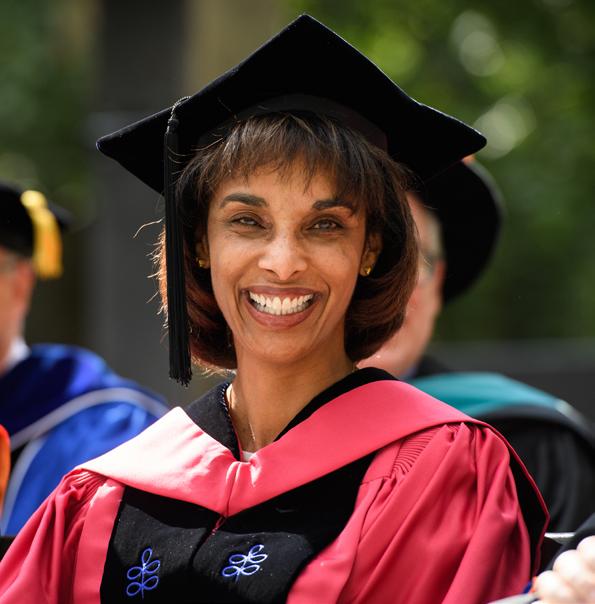 Cecilia Elena Rouse
Cecilia Elena Rouse
I respectfully submit this year’s annual report, which covers activities at the School from July 1, 2019, to June 30, 2020.
I characterize the first part of the year as focused on infrastructure: We engaged in efforts to reshape the School’s brick and mortar space, improve our digital presence, and define for the first time the mission of the School.
The second part of the year was defined by our efforts to “pivot.” With an unexpected pandemic and resulting financial fallout, we took action to creatively continue teaching while keeping students, faculty, and staff safe.
The backdrop of all of this was our continuing efforts to improve Diversity, Equity, and Inclusion (DEI) at the School, particularly as nationwide events brought into stark reality racism across America. An important step: We are now the Princeton School of Public and International Affairs, as the University leadership agreed it was time to retire the name of Woodrow Wilson given his racist legacy.
In the pages that follow, we profile the work of our faculty and research centers, activities for and by our students, and details about several special projects. I want to call attention to these special projects in particular:
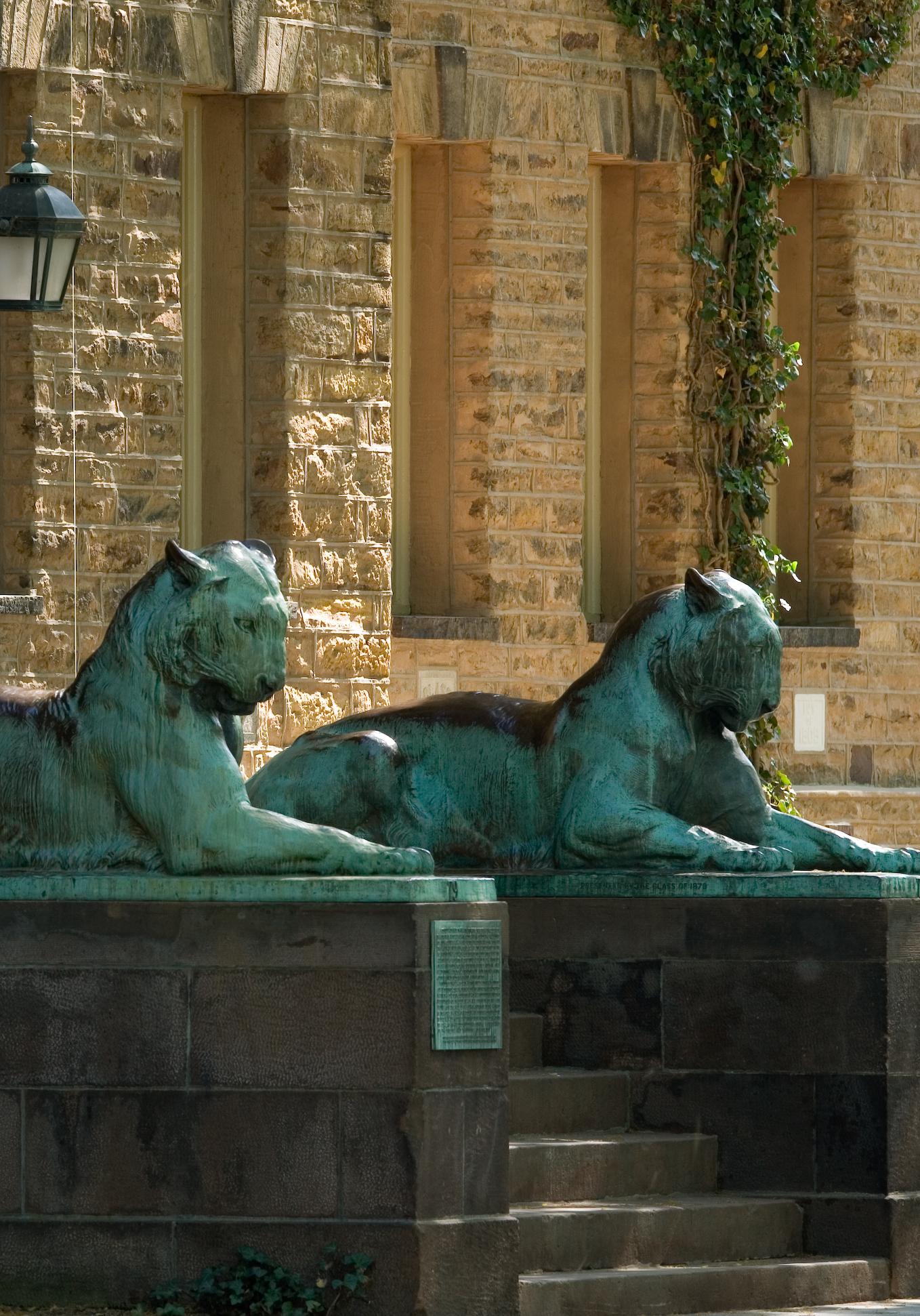
In order to create a more collaborative and efficiently built environment for the School, we retained KPMB Architects to redesign and oversee the renovation of Robertson Hall.
A number of objectives were identified in the architectural planning process, including: improving acoustic performance, thermal comfort, and way-finding; demonstrating a
commitment to sustainability, health, and well-being; and responding to the unique architectural heritage of Robertson Hall while ensuring that interior spaces are both flexible and durable.
Completed in August 2020, I believe the newly designed space will provide a highly collaborative environment while meeting the 21st century needs of our faculty, staff, and students.
A New Website
Websites age quickly, and, after six years, it was time to revamp ours. We hired Evolving Web to redesign the current website with the goal of implementing an improved site architecture, a revision of all content, a more modern look and feel, and an improved search mechanism. Launched in July 2020, the new website promises to make finding faculty research, program and curriculum content, and extracurricular activities easier and more intuitive.
In March, the reality of a global pandemic became clear. Along with the rest of the University, the School had to make a number of decisions in a short time frame to ensure the health and safety of students, faculty, and staff, while continuing to stand up robust academic programs. We considered and implemented everything from building policies and work-from-home rules to remote teaching and grading policy to communications with our community and virtual commencement. I would be remiss if I did not thank Mark W. Watson, who was acting dean from March 1 to July 31, for overseeing a huge amount of work related to this crisis.
The name of the School has been controversial for decades, most recently as students in 2015 sought to educate our community about Wilson’s racist views and actions. Initially, the Princeton Board of Trustees sought to deal with the students’ call to remove his name from the School by, among other things, creating a permanent “marker” that explored the full legacy of Wilson, including his very troubling views on race and gender. “Double Sights,” an installation on Scudder Plaza designed by renowned artist Walter Hood, is the result. During the time covered by this report, we completed work with Hood on the installation and hosted an event in October 2019 for its unveiling.
At a vote held June 26, 2020, the Trustees took this a step further and removed Wilson’s name from our School. We worked closely with the University to announce this important measure and are currently tackling the nuanced tasks of ensuring that campus entities bearing his name and the WWS abbreviation be changed.
This year, I embarked on a process to craft, for the first time, a mission statement for the School, including a revised vision statement reflecting our values on DEI. The goal was not only to produce a mission statement, but also to learn during the process how our faculty, students, and alumni view the School.
regarding CFAR’s findings, the faculty drafted a statement that captures the teaching, education, and goals of the School.
Students also called for a pilot program that would mandate that every Master of Public Affairs (MPA) student take a course focused on DEI issues. The faculty took a slightly different tack and in June agreed to conduct a full review of the core curriculum in 2020-21 to not only consider the best way to incorporate issues regarding DEI into the curriculum, but also to ensure that the core curriculum continued to reflect what all policy students should know more generally. Since the review would be conducted during the 2020-21 academic year, the faculty voted as an interim measure to implement a mandatory course for MPA students starting with the incoming class of MPAs; this requirement will remain in effect until the faculty votes on a revised core curriculum.
Our work for next year is cut out for us. As killings of unarmed Black Americans by police incited unrest across the country and Covid-19 took a disparate toll on communities of color, our students demanded that, as a School, we take action to address racism within our own community. In addition, President Christopher L. Eisgruber charged his cabinet (on which I sit) to find ways to address racism across the University.
To help us with this work, we engaged a private consulting firm, CFAR. A faculty committee was also created to help guide the work. After submitting a report to the faculty
In the coming year, we will conduct a full review of the undergraduate and graduate curricula and a thorough examination of our admissions and hiring processes to see if we can do better to diversify our ranks. We will also develop programming to address racism and inequity, continuing the work we have done on DEI issues. I am energized by these challenges and look forward to reporting on them next year.
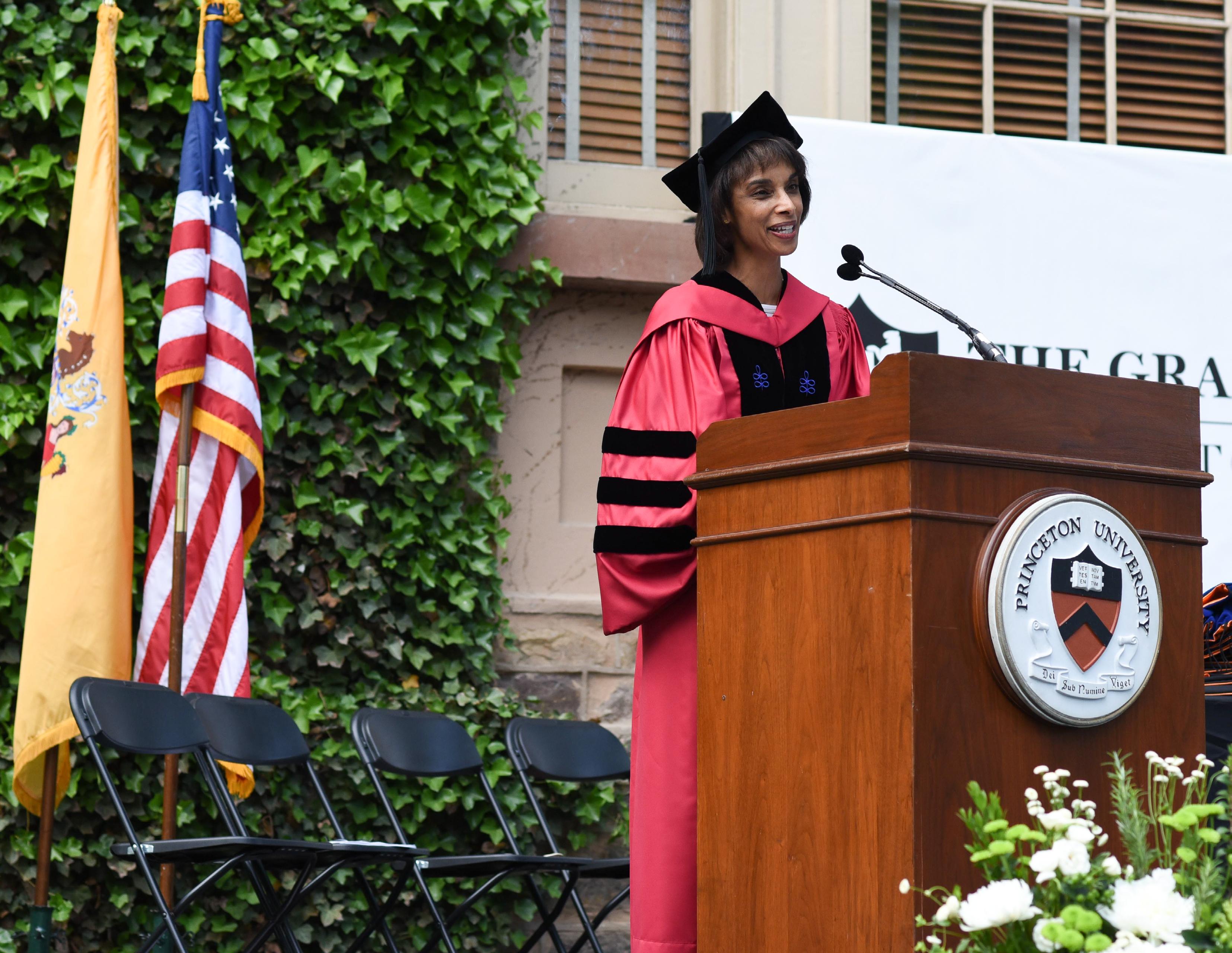
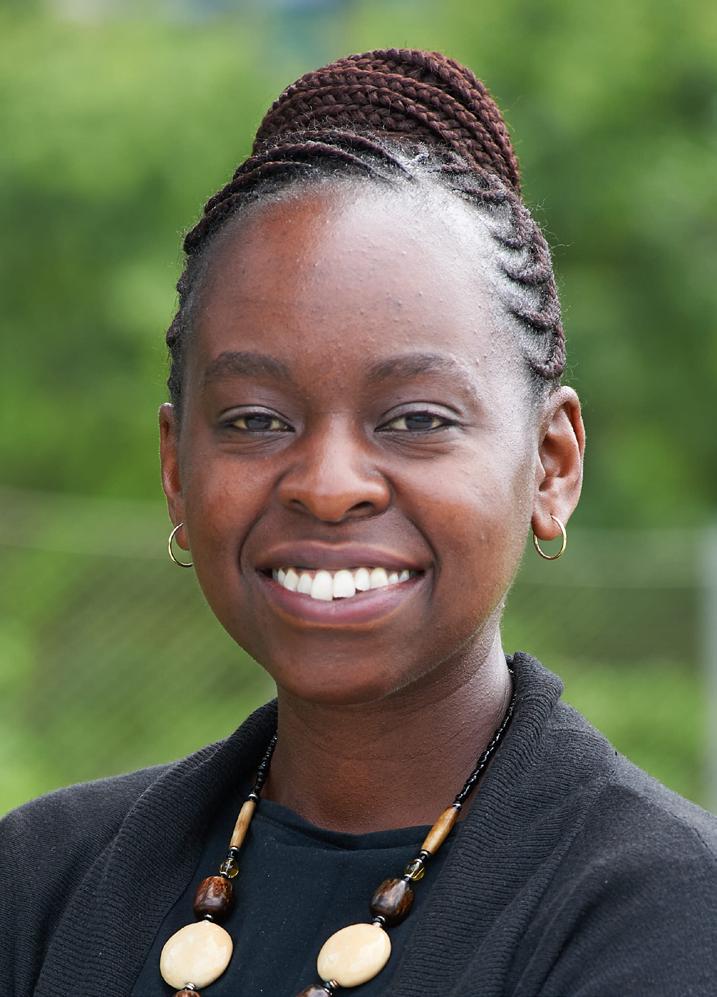 James
James
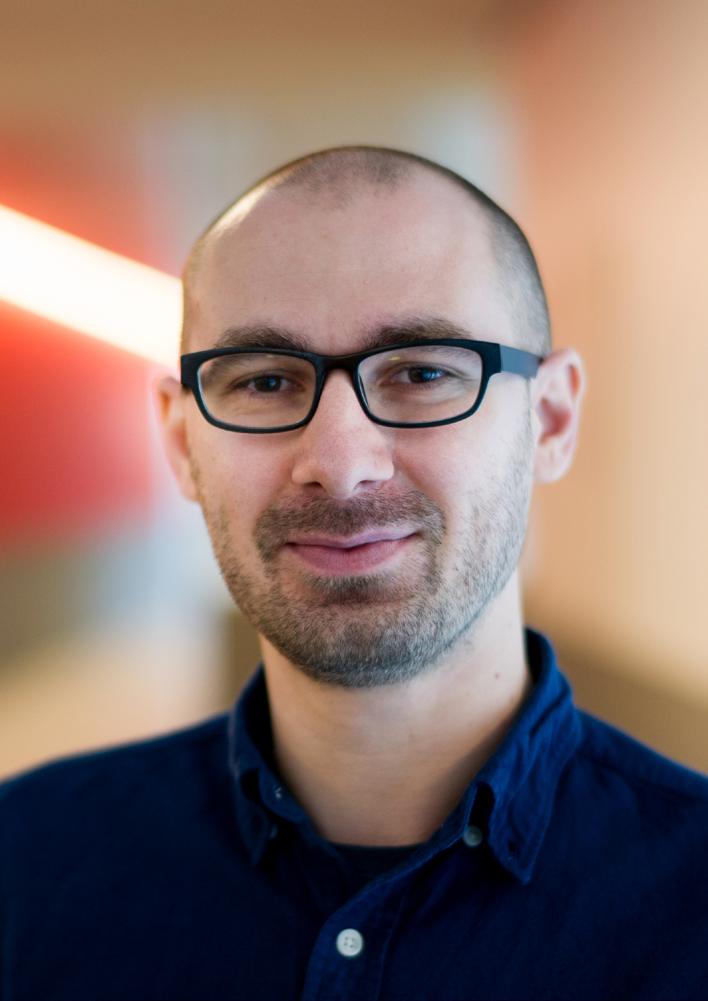
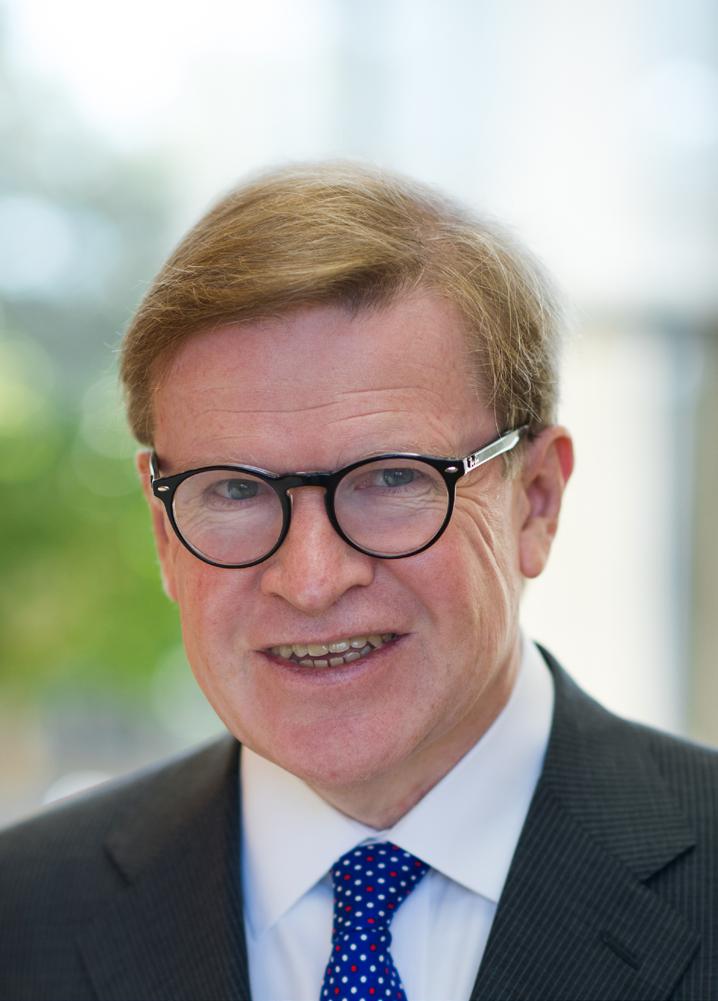 Maria Micaela Sviatschi
Maria Micaela Sviatschi
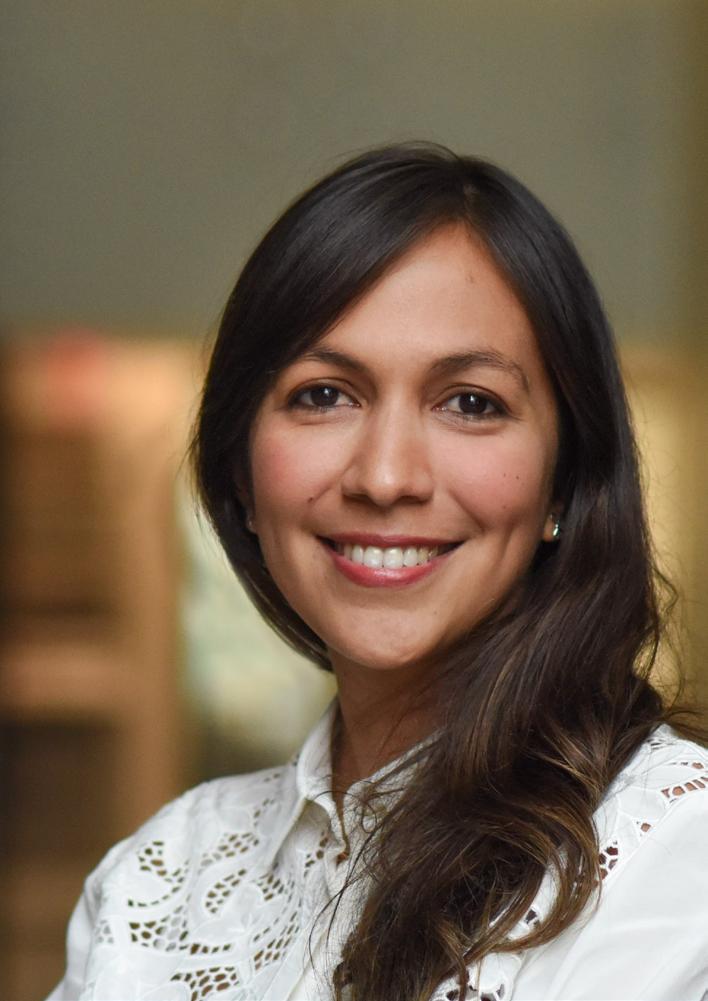 Alin I. Coman
Alin I. Coman
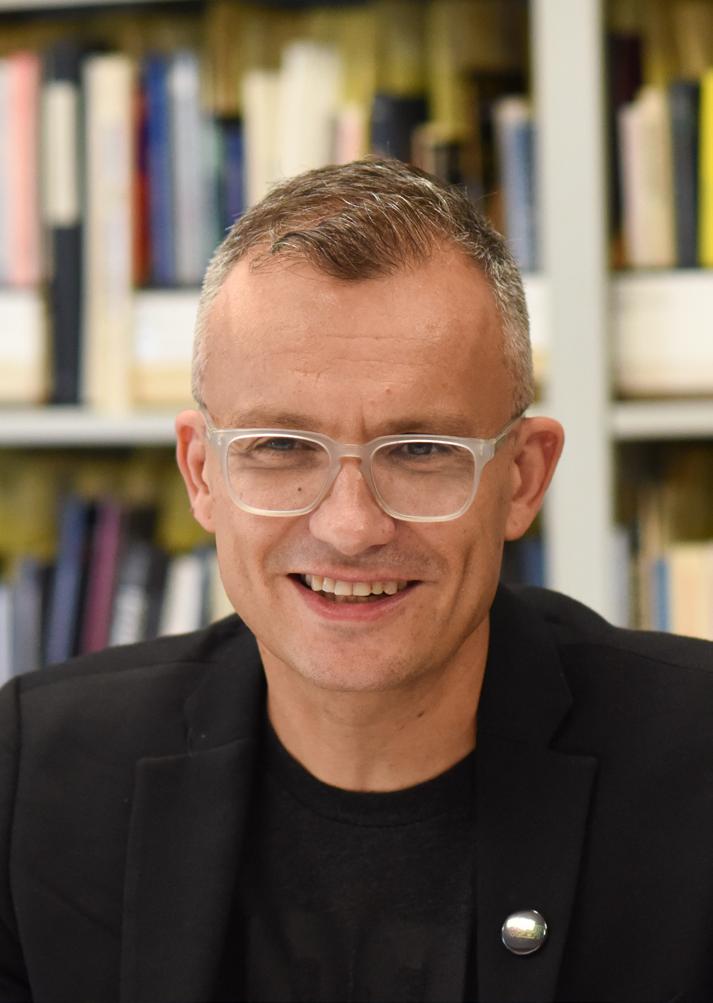 Frances E. Lee
Frances E. Lee
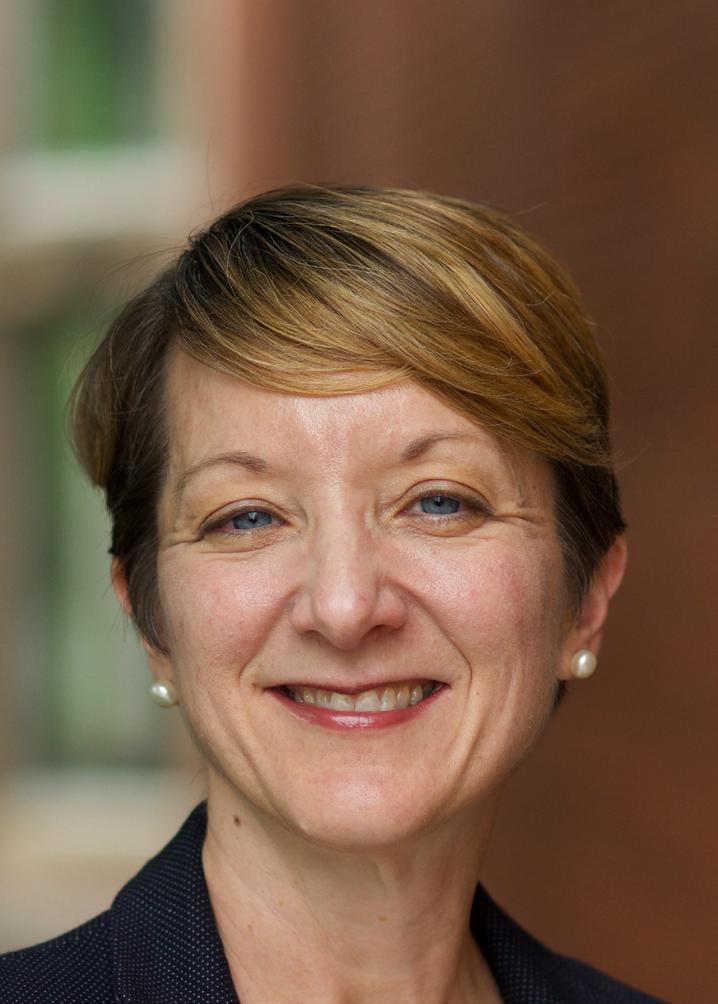
During the 2019-20 academic year, the School conducted a strategic search to identify and recruit new faculty members, ultimately welcoming four new full-time faculty with appointments beginning July 1, 2020. Four existing faculty members also were promoted.
In addition, Shirley M. Tilghman, president of Princeton University, emeritus, and professor of molecular biology and public affairs, transferred to emeritus status, effective July 1, 2020. The School also honored the passing of Jameson Doig MPA ’58, professor of politics and public affairs, emeritus; and Paul A. Volcker, Frederick H. Schultz Class of 1951 Professor of International Economic Policy, Emeritus, and professor of public and international affairs, emeritus.

Ismail K. White joined the School as professor of politics and public affairs. Previously, he served as associate professor of political science at Duke University. White studies American politics with a focus on African American politics, public opinion, and political participation. From 2007 to 2008, he was a research scholar at the School’s Center for the Study of Democratic Politics. White earned a Ph.D. in political science from the University of Michigan in 2005.
regional focus on Latin America. Tuñón earned a Ph.D. in political science from the University of California, Berkeley, in 2019.
Layna Mosley joined the School as professor of politics and international affairs. Previously, she was a professor in the politics department at the University of North Carolina at Chapel Hill. Mosley focuses on the politics of the global economy, as well as international relations more broadly. She investigates the connections between domestic politics and the global economy. Mosley received a Ph.D. in political science from Duke University in 1999.
Zhao Li joined the School as assistant professor of politics and public affairs. She focuses on democratic representation and accountability in the United States with a focus on campaign finance. Previously, she was a postdoctoral research associate at Princeton. She earned a Ph.D. in political economics from the Stanford Graduate School of Business in 2019.
Guadalupe Tuñón joined the School as assistant professor of politics and international affairs. Before coming to Princeton, Tuñón was an academy scholar at Harvard University’s Weatherhead Center for International Affairs, as well as a predoctoral fellow at the Identity and Conflict Lab at the University of Pennsylvania and the Center for the Study of Religion and Society at the University of Notre Dame. She focuses on comparative politics and political economy with a
Rafaela M. Dancygier was promoted to professor of politics and international affairs. Previously, she served at the School as associate professor from 2016 to 2020, as assistant professor from 2008 to 2016, and as an instructor from 2007 to 2008. Dancygier specializes in comparative politics, with a focus on the implications of ethnic diversity in advanced democracies. She earned a Ph.D. in political science from Yale University in 2007.
C. Jessica E. Metcalf was promoted to associate professor of ecology and evolutionary biology and public affairs.
Since 2014, she served as an assistant professor at the School. Her interests lie in evolutionary ecology, infectious disease dynamics, and public policy. In 2005, she completed her Ph.D. from Imperial College London on the evolutionary demography of monocarpic perennials.
Eduardo Morales was promoted to professor of economics and public affairs. Since 2013, he served as an assistant professor at the School. His research interests are in international trade, spatial economics, industrial organization, and econometrics. Morales earned a Ph.D. in economics from Harvard University in 2011.
Owen M. Zidar was promoted to professor of economics and public affairs. Previously, he served at the School as associate professor during the 2019-20 academic year, as assistant professor during the 2018-19 academic year, and as a visiting assistant professor during the 2017-18 academic year. Zidar studies the taxation of firms and top earners, local fiscal policy, and the creation and distribution of economic resources. He earned a Ph.D. in economics from the University of California, Berkeley, in 2014.
The following faculty members departed from Princeton University and the School of Public and International Affairs: Marc Fleurbaey, Robert E. Kuenne Professor in Economics and Humanistic Studies, professor of public affairs and the University Center for Human Values; Oleg Itskhoki, professor of economics and international affairs; and Benjamin Moll, professor of economics and international affairs.
The School produces a number of stories to convey the work of the School. This includes research briefs, which are summary “translations” of faculty research. All are disseminated broadly to the media, policymakers, advocacy groups, academics, and alumni. The main findings of faculty research authored or co-authored over the past year follow.
Facebook’s tips to spot fake news are effective in helping users identify misinformation online — but this effect decays over time, signaling the need for continued digital media literacy.
Andy Guess
Assistant Professor of Politics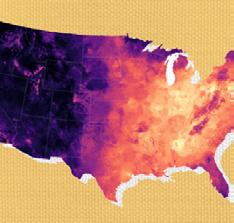
overwhelmingly rely on the upper tidal zones closest to dry land for food and rest. Conservation should focus more on these locations, which are increasingly being lost to development.
David S. WilcoveProfessor of Ecology and Evolutionary Biology and Public Affairs and the Princeton Environmental Institute
In summer 2020, the U.S. Congress started to debate whether to build the nation’s second plutonium pitproduction factory in South Carolina. However, this may be unnecessary, since the U.S. does not currently have a pressing need to produce more pits for nuclear warheads.
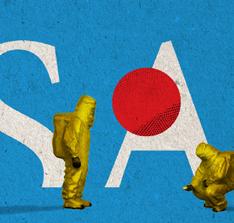
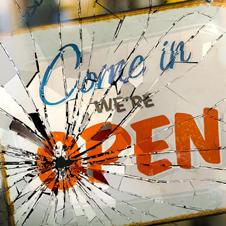
Thanks to the Clean Air Act, racial disparities in pollution exposure have fallen in recent years. These environmental regulations have had the greatest impact on reducing exposure for African Americans, who have historically lived in the most polluted areas.
Babies born to foreign-born Black women living in the U.S. typically have better birth weight outcomes than babies born to U.S.-born Black women, but this “birth weight advantage” is lost within a single generation. This decline may be due to discrimination and systemic racism in America.

Noreen Goldman Hughes-Rogers Professor of Demography and Public Affairs
Simulations of Covid-19 scenarios across the globe reveal that local variations in climate/temperature are not likely to play a large role in the first wave of the pandemic. Rather, control measures such as social distancing will be stronger drivers of infection rates.
Frank N. von Hippel
Professor of Public and International Affairs, Emeritus
Janet M. Currie Henry Putnam Professor of Economics and Public Affairs Bryan T. GrenfellKathryn Briger and Sarah Fenton Professor of Ecology and Evolutionary Biology and Public Affairs
C. Jessica E. MetcalfAssociate Professor of Ecology and Evolutionary Biology and Public Affairs

People living in homogeneous areas tend to hold negative stereotypes about “outsiders.” However, people from diverse areas are more likely to perceive themselves and others as part of their local community regardless of racial, ethnic, or religious differences.

Eugene Higgins Professor of Psychology
The virus that causes Covid-19 has strategically evolved so people who do not show symptoms can still transmit the infection to others; this has allowed it to spread rapidly and silently throughout the world.
Bryan T. Grenfell Kathryn Briger and Sarah Fenton Professor of Ecology and Evolutionary Biology and Public AffairsPolicymakers are being faced with very difficult decisions during the ongoing Covid-19 pandemic. There are many pitfalls that challenge judgment — including fear of the unknown and hindsight bias, among others — that they should be aware of in times of crisis.


Professional development workshops aimed at mentoring women can increase the likelihood of female economists staying in academia and also help them to secure tenure-track jobs.

 Janet M. Currie
Janet M. Currie
Eldar Shafir
Class of 1987 Professor in Behavioral Science and Public Policy
Henry Putnam Professor of Economics and Public Affairs
Poor people experience more financial hardships in areas with greater income inequality because they lack support from their communities. This exacerbates cycles of poverty, making them less likely to ask for help even in times of crisis.
 Elke U. Weber
Elke U. Weber

Gerhard R. Andlinger Professor in Energy and the Environment and Professor of Psychology and Public Affairs
Younger siblings are more likely to apply and enroll in the same college and major as their older siblings. This finding points to the role of family and peer networks in influencing college decisions.
 Christopher A. Neilson Assistant Professor of Economics and Public Affairs
Christopher A. Neilson Assistant Professor of Economics and Public Affairs
State and local governments spend at least $30 billion a year on business tax incentives that are allocated to a very small collection of businesses, such as Amazon, which are opening offices in new locations.
Owen M. ZidarAssociate Professor of Economics and Public Affairs
People perceived to be wearing “richer” clothing are seen as more competent than people perceived to be donned in “poorer” clothing. This suggests obstacles for low-income individuals in relation to how their abilities are perceived.
Eldar ShafirClass of 1987 Professor in Behavioral Science and Public Policy
A weeklong retreat in Amsterdam inspired researchers to publish a guide on how teams can reach consensus despite holding conflicting opinions. Engaging in this adversarial collaboration can resolve important issues and advance science.

Many have pointed to the strong role fake news seemed to have on the 2016 U.S. presidential election, but the reach of this online misinformation has been overstated. Less than half of Americans visited an untrustworthy website, and only 6% of Americans relied on these sites for news coverage.

A study’s claims that white police officers are no more likely to shoot racial minorities than nonwhite officers is likely inaccurate since it did not take into account a number of key statistical factors.
Jonathan F. MummoloAssistant Professor of Politics and Public Affairs
A new modeling approach will help policymakers make informed decisions by simulating coastal migration and addressing the effects of rising sea levels on how and where people migrate.
Michael OppenheimerMany bird species are unaffected by environmental disruptions, which may be because they are more adaptable to seasonal temperature changes. This provides evidence that species living in highly seasonal climates are less vulnerable to disturbances.
Pesticide companies may be holding their financial interests above public health concerns by lobbying for stricter regulations on less profitable products while their more popular products yield high profits.
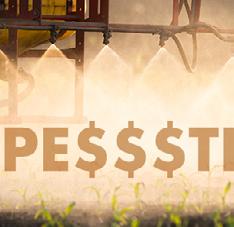 Susan T. Fiske
Susan T. Fiske
Eugene Higgins Professor of Psychology
Andy Guess
Assistant Professor of Politics and Public Affairs

Albert G. Milbank Professor of Geosciences and International Affairs
David S. WilcoveProfessor of Ecology and Evolutionary Biology and Public Affairs and the Princeton Environmental Institute
Rebecca L. PerlmanAssistant Professor of Politics and International Affairs
The U.S. is experiencing a new Industrial Revolution sparked by technological innovation in the service, retail, and wholesale industries, which are harnessing the power of the internet to expand into new markets and increase their scale of operations.



 Esteban A. Rossi-Hansberg
Esteban A. Rossi-Hansberg
Theodore A. Wells ’29 Professor of Economics and International Affairs

While passing minimum legal sale age laws has effectively reduced overall teenage electronic cigarette use, this has unintentionally increased rates of prenatal cigarette smoking among teens who smoked prior to pregnancy.
































 Janet M. Currie Henry Putnam Professor of Economics and Public Affairs
Janet M. Currie Henry Putnam Professor of Economics and Public Affairs
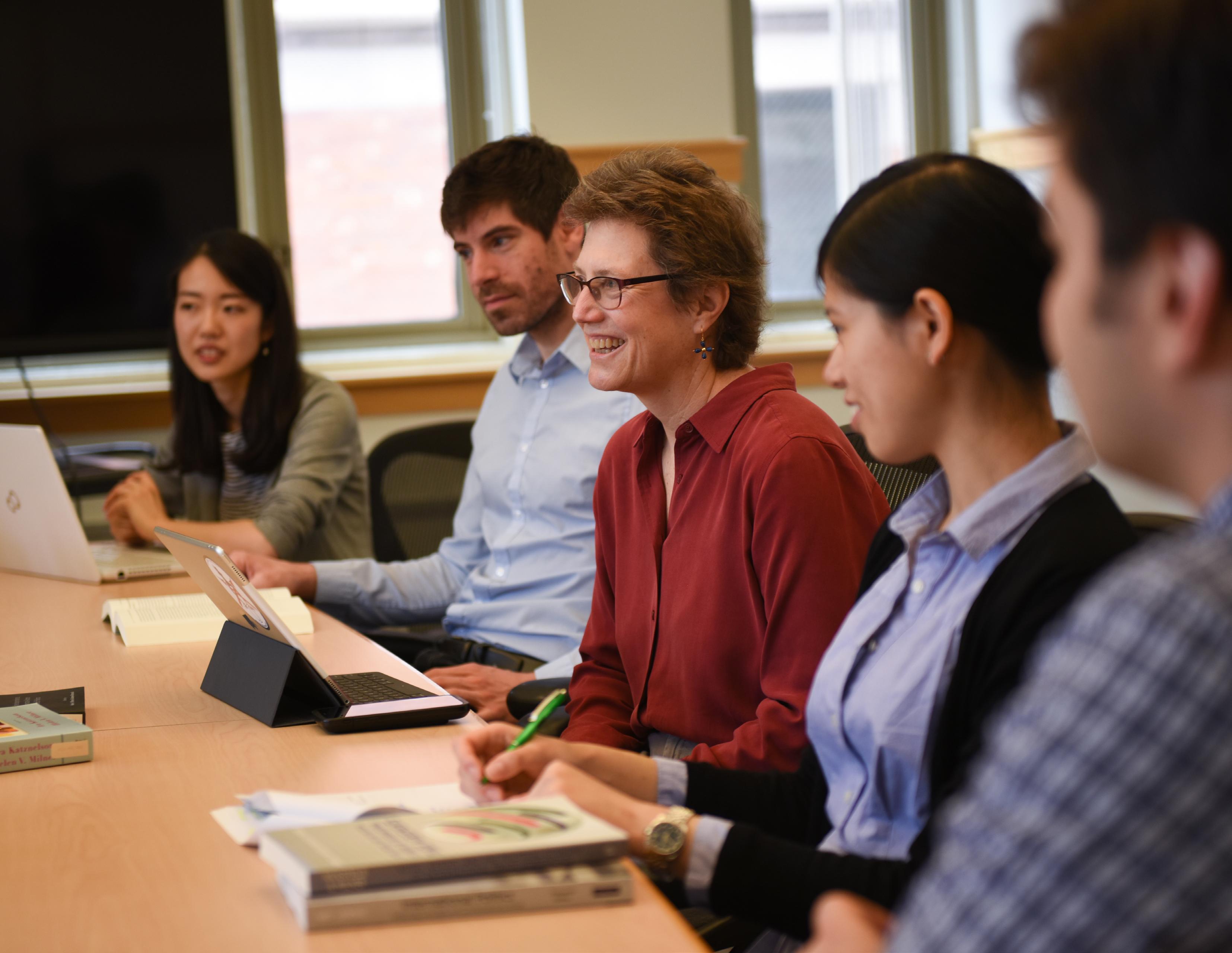
Recent artificial intelligence models are using new data science to predict life outcomes for children, parents, and families — but more often than not, these machine predictions are not accurate.
 Matthew J. Salganik Professor of Sociology and Director of the Center for Information Technology Policy
Matthew J. Salganik Professor of Sociology and Director of the Center for Information Technology Policy
The U.S. government has expanded its use of the Earned Income Tax Credit to support low-income families. While many consider it especially effective at reducing poverty among single mothers, the role of the program at increasing employment may be overstated.
Henrik J. KlevenProfessor of Economics and Public Affairs










Smallholder farmers operate family plots for sustenance and small profits, but their agricultural practices pose serious threats to the biodiversity in northeastern Peru.
David S. Wilcove Professor of Ecology and Evolutionary Biology and Public Affairs and the Princeton Environmental Institute
Head, Butler College, Princeton University

Member, National Academy of Sciences
2019 “World’s Top 50 Thinkers,”
Prospect Magazine
Amb. Ryan Crocker
2020 Sylvanus Thayer Award, West
Point Association of Graduates
Sir Angus S. Deaton
2019 “World’s Top 50 Thinkers,”
Prospect Magazine
Frontiers of Knowledge Award in Social Sciences, BBVA Foundation
Finalist, PROSE Award, Association of American Publishers
Lightning Scholar, University of Pennsylvania’s Perry World House Inaugural Emerging Scholars
Global Policy Prize, University of Pennsylvania’s Perry World House
Ronald Pipkin Service Award, Law and Society Association
Shirley M. Tilghman
Co-Chair, New Jersey Restart and Recovery Commission
Elke U. Weber Member, National Academy of Sciences
Julian E. Zelizer Member, Biographers International Organization Owen M. Zidar
Heather H. Howard Member, Health Care Subcommittee, New Jersey Restart and Recovery Advisory Council
2020 Sloan Research Fellow, Alfred P. Sloan Foundation
Democratic Capitalism at the Crossroads: Technological Change and the Future of Politics
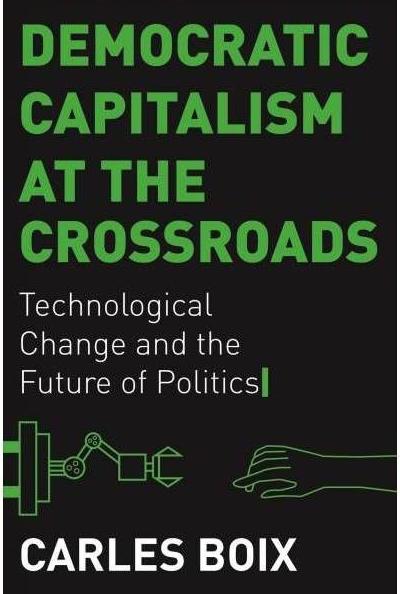 By: Carles Boix
By: Carles Boix
Deaths of Despair and the Future of Capitalism
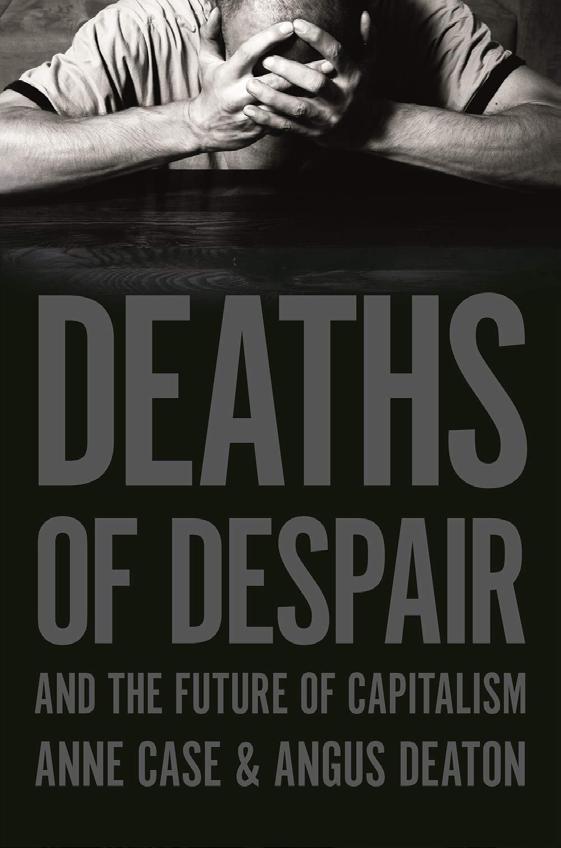

Co-authored by: Anne C. Case and Sir Angus S. Deaton
Restoring the Global Judiciary: Why the Supreme Court Should Rule in U.S. Foreign Affairs
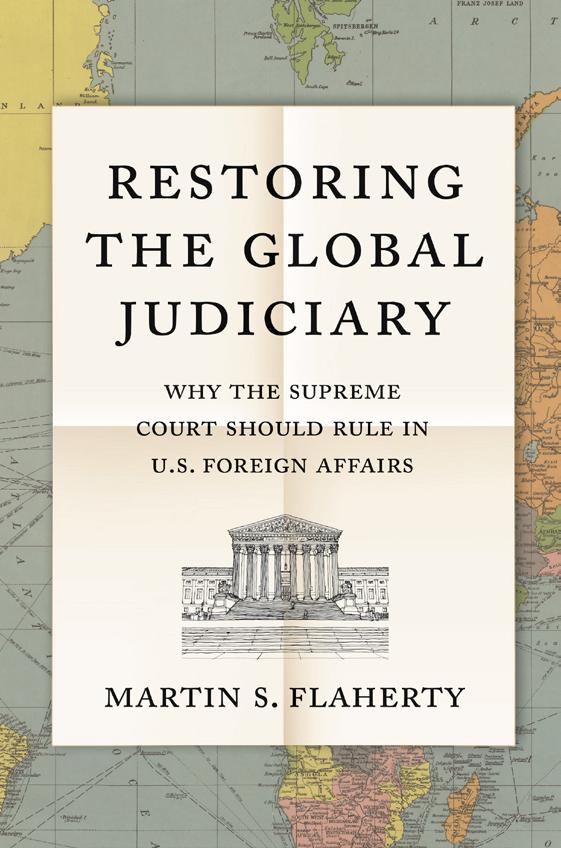 By: Martin S. Flaherty
By: Martin S. Flaherty
Imperialism and the Developing World: How Britain and the United States Shaped the Global Periphery
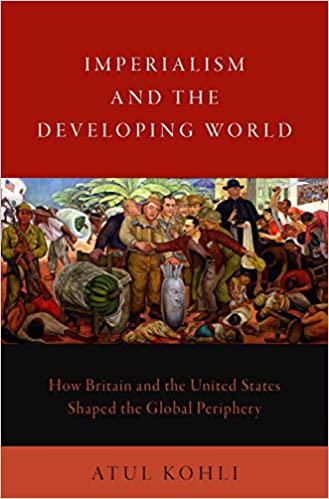 By: Atul Kohli
By: Atul Kohli
Can America Govern Itself?

Co-edited by: Frances E. Lee and Nolan McCarty
Crippling Leviathan: How Foreign Subversion Weakens the State
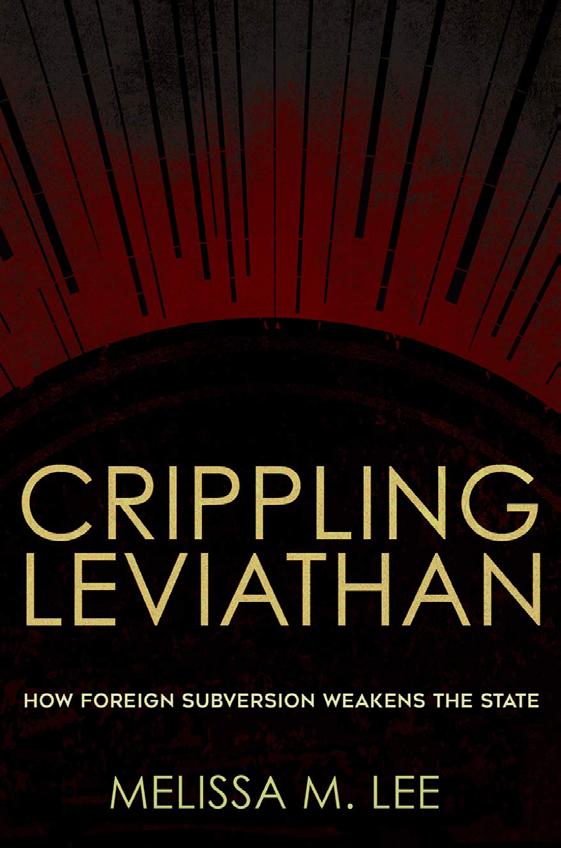 By: Melissa M. Lee
By: Melissa M. Lee
Polarization: What Everyone Needs to Know By: Nolan McCarty
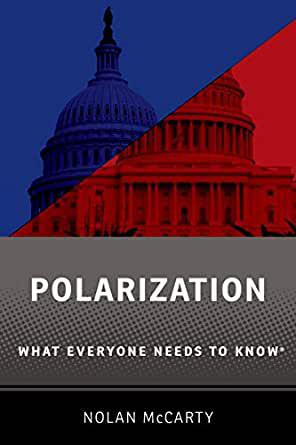
Priced Out: The Economic and Ethical Costs of American Health Care
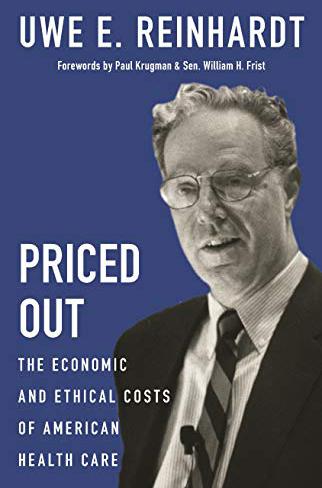
By: Uwe E. Reinhardt with Tsung-Mei Cheng (Epilogue), Paul Krugman (Foreword), and Sen. William H. Frist (Foreword)
Star Power: American Democracy in the Age of the Celebrity Candidate
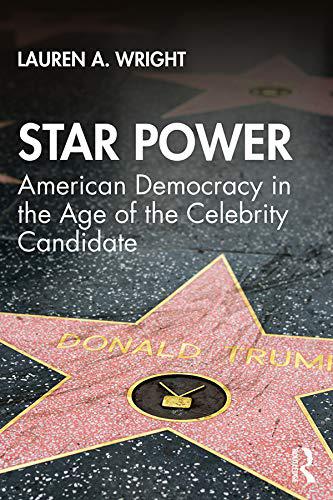 By: Lauren A. Wright
By: Lauren A. Wright
This news-focused series features interviews with faculty, who present their views about current events.
Has the Constitution Withstood the Test of Time?
Sept. 16, 2019
Charles M. Cameron, Paul Frymer, Jonathan Mayer, Kim Lane Scheppele, Sarah L. Staszak, and Keith E. Whittington
Trump’s Decision to Withdraw U.S. Troops from Syria
Oct. 14, 2019
Jacob N. Shapiro
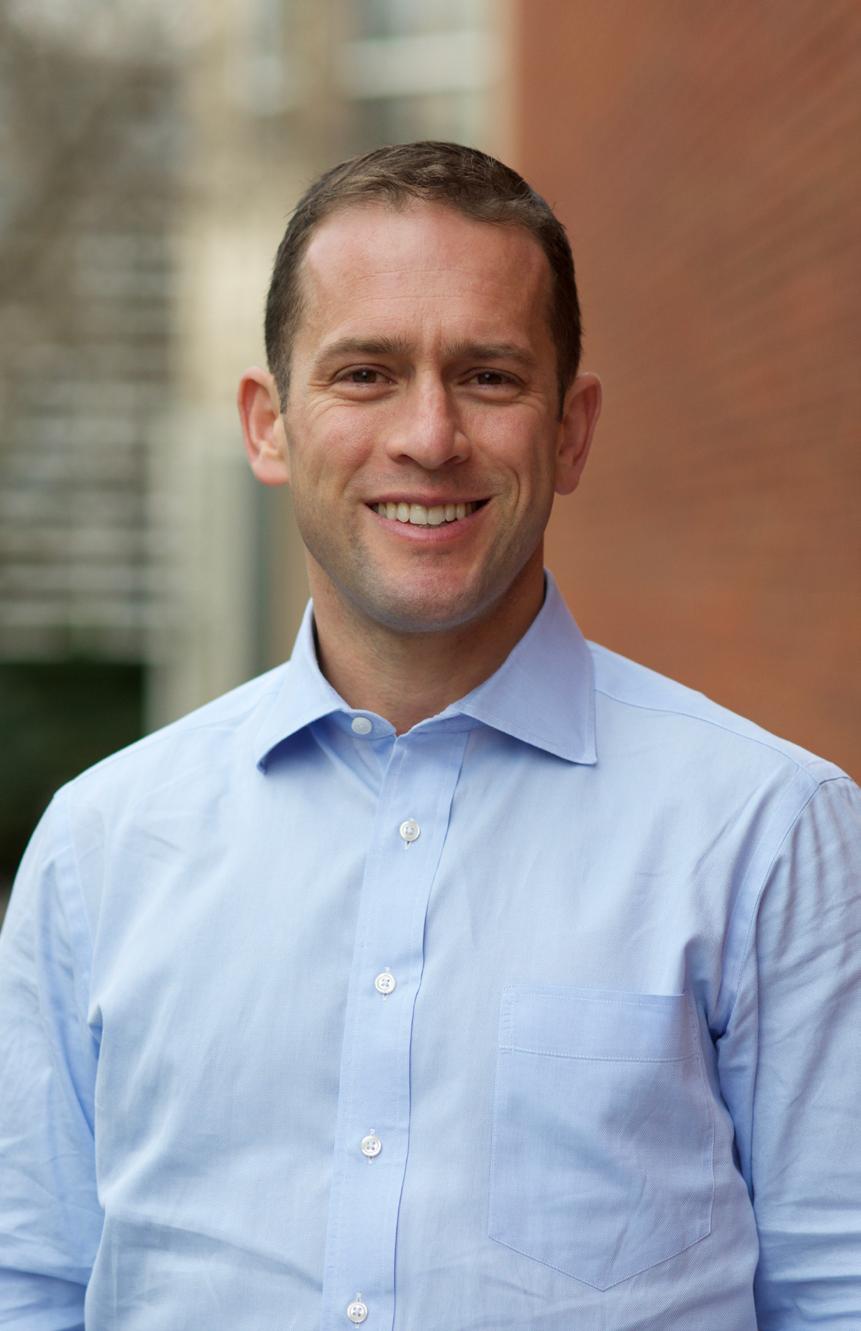
Why the Messenger Matters in Climate Action
Oct. 23, 2019 Elke U. Weber
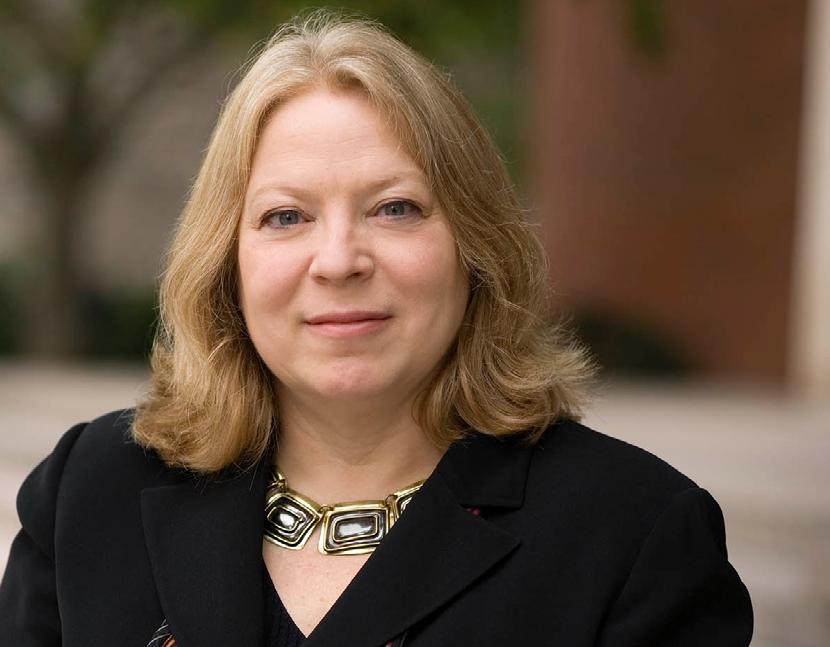
Leaked Cables Reveal Iran’s Influence Over Iraq
Nov. 20, 2019
Amb. Ryan Crocker and Jacob N. Shapiro
House to Vote on Articles of Impeachment Dec. 18, 2019
Charles M. Cameron, Paul Frymer, Frances E. Lee, and Keith E. Whittington
Congressional Testimony: Universal Childhood Allowance Could Reduce Childhood Poverty March 3, 2020 Kathryn J. Edin
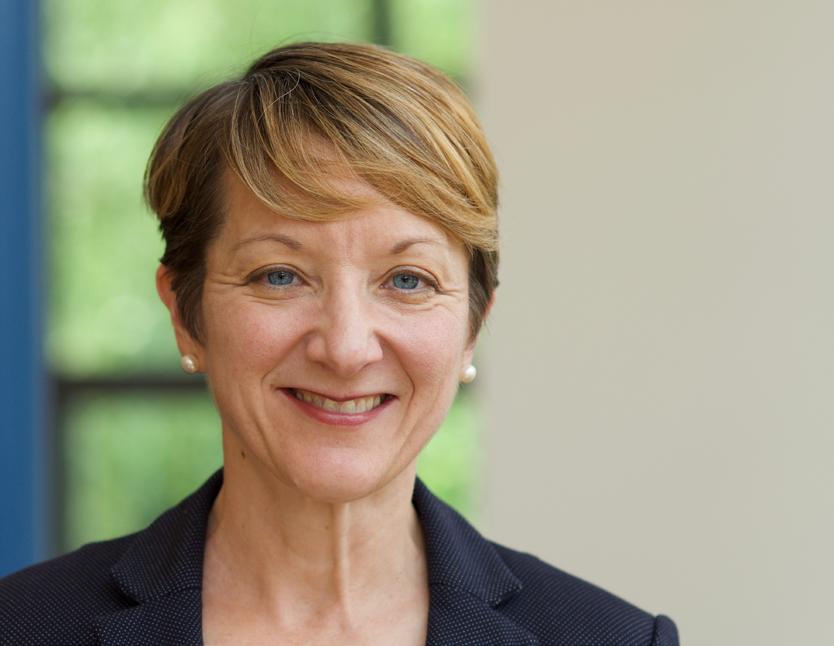
“Impeachment has not much affected the political divides in American politics, beyond raising the emotional temperature.” — Frances E. Lee, Professor of Politics and Public Affairs
“I worry that the removal of U.S. troops from northern Syria could enhance Russian and Iranian influence, enabling the regime to grab new territory. It could even exacerbate the terrorist threat in the region and beyond.” — Jacob N. Shapiro, Professor of Politics and International Affairs
“The U.S. Constitution is presently held up by the scaffolding of unspoken conventions and rules that go without saying and court decisions that update it and the common belief that the Constitution still works. But this is a fragile structure. As soon as people no longer believe that the Constitution is real, it will begin to collapse.” — Kim Lane Scheppele, Laurance S. Rockefeller Professor of Sociology and International Affairs
When Covid-19 hit, the School turned its attention to faculty, student, and alumni work related to the pandemic through this Q&A series.

“We Can’t Leave Anybody Behind”: Covid-19 to Have Major Impact on Refugee and Poor Communities
April 13, 2020
Douglas Mercado
How Developing Countries Might Grapple with Covid-19
April 15, 2020
Melissa M. Lee
Keeping New Jerseyans Safe: Q&A with N.J. Department of Health’s Henri Hammond-Paul MPA ’19
April 20, 2020
Henri Hammond-Paul
Princeton Research on Covid-19 Misinformation Fuels Partnership with Microsoft Research
April 20, 2020
Jacob N. Shapiro
Family Health During a Global Pandemic
April 27, 2020
Janet M. Currie
China’s Response to Covid-19
April 27, 2020
Rory Truex
Health Coverage in the U.S. During Covid-19 May 6, 2020
Heather H. Howard
Envisioning a Safe, Effective Economic Recovery
May 11, 2020
Cecilia E. Rouse
Congressional Testimony: Covid-19 Exposes Inequalities in Health and Wealth June 23, 2020
Sir Angus S. Deaton

• The center’s “American Voices Project” has concluded its first phase of fieldwork by completing around 1,800 interviews across all 50 states, Washington, D.C., and Puerto Rico. This innovative project is a comprehensive effort committed to listening to Americans to determine what needs to be improved to make our neighborhoods and country work better.
• The center continues to co-sponsor the Fragile Families and Child Wellbeing Study, which follows a cohort of nearly 5,000 American children in urban areas and uses innovative technology to project their life outcomes. Center researchers published an article about the work in the Proceedings of the National Academy of Sciences of America and a special issue about the predictive modeling phase of the study in the journal Socius.
• The center also publishes the journal Future of Children, a collaboration of several centers at the School. It published issues on “Universal Approaches” and “How Cultural Factors Shape Economic Outcomes” to translate the best social science research about children and youth into information that is useful to policymakers.
• The center supported more than 100 undergraduates enrolled in the Global Health and Health Policy certificate and 17 graduate students pursuing the Health and Health Policy certificate. The center facilitated internships and research opportunities for 92 students in 19 countries, establishing new institutional partnerships in Malaysia, Switzerland, England, and the United States.
• The center sponsored affiliated faculty in conducting groundbreaking Covid-19 research. Center-supported research topics included strengthening surveillance in resource-poor settings, designing ethical evidencebased pandemic maternity care, uncovering the Covid-19 crisis’s racial dimensions, determining the impact of Medicaid disenrollment on child health, and applying a historical perspective to the U.S. epidemic experience.
• The center has actively engaged in public outreach about Covid-19 and other health issues. The center co-sponsored events about the pandemic’s impacts in the “global south” (developing countries) and on fiscal, monetary, and health policy responses. Meanwhile, affiliates have participated in numerous webinars focused on Covid-19.
• Director Matthew J. Salganik and more than 100 co-authors worked on a mass collaborative study showing that supervised machine learning techniques may fall short in predicting outcomes that influence policy. This research was published in Proceedings of the National Academy of Sciences of America, and 12 team results also were published in a special issue of the journal Socius about the predictive modeling phase of the study.
• Center researchers have been leading research that identifies dark patterns at scale in online services. These researchers have proposed an analytical framework for assessing and identifying dark patterns that designers, practitioners, and policymakers can use to mitigate risks.
• The center’s leading research on cryptocurrencies and blockchains is pursued in four areas: anonymity, privacy, and security; incentives, economics, and game theory; applications of blockchains and cryptocurrencies; and law. Select projects include the development and maintenance of BlockSci, a high-performance tool for blockchain science and exploration; evaluating security risks to cryptocurrencies from subscriber identity module swaps; game theory of mining; and developing a random beacon that uses smart contracts to enforce an incentive structure.
• In an event hosted by the center’s Strategic Education Initiative, Gen. David Petraeus MPA ’85, Ph.D. ’87 discussed U.S. grand strategy in a world increasingly driven by great power competition, the future of U.S. counterinsurgency tactics and special operations, and the ways in which his Princeton education influenced his career trajectory.
• U.S. Army War College Fellow Lt. Col. Kirby (Bo) Dennis conducted research into Army readiness in the Arctic and offered recommendations on the ways the Army can operationalize strategic guidance and enhance its readiness in this emerging theater. Additional research of his examined the history of professional military education change within the Army and offered immediate and concrete steps to modify current practices.
• The center hosted a collaborative research project, “Contested Narratives of the Global,” which gathered scholars from a range of disciplines and specializations to illuminate the multiple narratives of the globe — from the 19th century into the current era — as well as to examine the nature of the contestation between and among them.
• Center researchers influenced key environmental policy by authoring reports on sea level rise and coastal adaptation for the Intergovernmental Panel on Climate Change; identifying methane leakage from abandoned oil and gas wells leading to their inclusion in national emission inventories; producing research on the Convention on International Trade in Endangered Species, resulting in state-level policy to protect wildlife; and writing a United Nations and World Bank-backed report on strategies to meet food production, land use, and emissions targets by 2050.
• The center co-hosted a workshop on “Understanding the Political Economy of Deep Decarbonization,” which was organized by Robert O. Keohane, professor of public and international affairs; Michael Oppenheimer, Albert G. Milbank Professor of Geosciences and International Affairs; and David G. Victor of the Brookings Institution. The workshop sessions brought together political scientists, engineers, physical scientists, and social scientists to discuss the scientific and political conditions required to facilitate a significant transition to cut down greenhouse gas emissions.
• Center researchers published work on a range of critical policy topics including strategies for adapting to coastal flood risk, China’s investment in foreign electric power infrastructure, public support for phasing out fossil fuel cars, verification technologies for nuclear disarmament, conservation strategies, and species’ responses to land-use changes. In the past year, their research has been featured in 60 Minutes, PBS NewsHour, CNN, The New York Times, The Washington Post, NPR, Mongabay, and other outlets.
• The center organized a conference on the “Politics of Judicial Nominations in an Age of Mistrust” to discuss the politics of federal judicial nominations. The conference brought together judges from the U.S. Court of Appeals; senior journalists from The Washington Post, The New York Times, and CNN; and leading policymakers, including former White House counsel and Senate Judiciary Committee counsel, in conversation about the evolution of these nominations.
• The center’s two broad policy projects were actively engaged in research as a foundation for outreach to policymakers on major issues. The project on institutions conducted an ambitious survey of voters and donors, focusing on whether donors have outsized influence and how these dynamics affect our federal institutions. The project on inequality studied how wealth inequality shapes public opinion and political participation.
• The center’s series of weekly research seminars continued to highlight the work of Princeton scholars and other national experts on issues of political and policy importance. These issues included disadvantages faced by Black political candidates, immigration, social media, the militarization and politics of policing, congressional-bureaucracy relations, sexual misconduct, constituency service in federal agencies, and bipartisan deliberation.
• ERS initiated its first education research and policy summer internship program in 2020, providing undergraduates interested in education research with exposure to quantitative and qualitative methods. Nine students, including those majoring in public and international affairs, politics, sociology, and computer science, participated in the program. It will culminate in the submission of a collective academic manuscript to the American Educational Research Association 2021 Meeting.
• ERS hosted a three-day interdisciplinary institute for 45 New Jersey middle and high school teachers interested in incorporating the study of lead in water to their science classrooms. Titled “UnleadED Teachers Institute,” it was taught by John A. Higgins, associate professor of geosciences; Scott A. Latham, associate research scholar; Robert B. Darnell, visiting research collaborator at the Lewis-Sigler Institute for Integrative Genomics; and Director Jennifer L. Jennings, professor of sociology and public affairs. Teachers will now have the opportunity to partner with the researchers to collect and analyze their students’ water data.
• Christopher A. Neilson and Adam Kapor, both assistant professors of economics and public affairs, have partnered with New Haven to assist the district in refining its school choice application and matching system.
•
•
The project launched two new research endeavors: a multi-institutional award focused on China’s Belt and Road Initiative funded by the Department of Defense; and a Princeton Institute for International and Regional Studies research community on development finance that partners with the JulisRabinowitz Center for Public Policy & Finance, the Department of Operations and Research Financial Engineering, and the African School of Economics.
The project continued its tradition of community building by launching a mentorship program for young scholars and having its first-ever virtual annual meeting.
•
The project engaged more than 30 students in a Covid-19 misinformation project in an effort to build data, drive research, and support early industry response to misinformation. The research has been accessed more than 3,000 times.
• The program continues to focus on institutional reform to enhance government effectiveness and accountability by supporting public servants, policymakers, civic groups, and scholars who lead institutional reform under difficult conditions. The program conducts interviews to engage leaders in conversation about particular challenges and highlight their contributions.
• The program produced a multipart series surrounding former Palestinian National Authority Prime Minister Salam Fayyad’s reflections on the initiatives he introduced while in office.
• The program’s research team traveled to Brazil, India, Albania, Israel, and Istanbul as part of a project that focuses on municipal coordination to scale delivery of early child development assistance to families living in low-income areas.
• With 34 affiliated faculty drawn from different departments across campus, the center continues to be at the forefront of research on topics from household debt to credit markets to regulation of financial markets and the role of financial institutions in economic growth. The center supports this work through research assistance, funding for data acquisition, and opportunities for collaborative and multidisciplinary research.
• The center received several grants; the Macrofinance Lab received an award from the National Science Foundation to support research and to build an open, online course. Natalie Marie Bachas and Arlene Wong, both faculty affiliates, received a grant to study the economic implications and costs of Covid-19 social distancing policies. The ninth annual conference explored the challenges of development finance in fragile states and marked the launch of a three-year, Princeton Institute for International and Regional Studies-funded research community focused on the topic.
• The center’s robust program of curricular and co-curricular activities engages and supports more than 90 student associates, both graduate and undergraduate. The center also offers funding for doctoral research, scholarly travel, undergraduate summer internships, student-led conferences and special initiatives like the “Policy Punchline” podcast series.
•
• The center provided consultatory assistance to institutions and governments developing public health policies to address Covid-19 responses, and affiliated faculty have been researching decision-making under the uncertainty of the pandemic. Eldar Shafir, Class of 1987 Professor in Behavioral Science and Public Policy, and others offered a review of the eight behavioral pitfalls that should be taken into account to fight the virus’s further spread.
• Elke U. Weber, Gerhard R. Andlinger Professor in Energy and the Environment, and a team of international colleagues studied the well-being of more than 1 million low-income individuals and their communities.
The studies found that financial hardship for lowincome people increases in areas with higher economic inequality. The research suggests that economic inequality erodes the tendency for low-income individuals to seek financial support from others and, therefore, their ability to rely on their communities as a buffer against financial strains.
As Covid-19 influences how we learn and share information about the pandemic, the center assembled online networks of people to look at the role of emotion on health behaviors and the effects of information quality and quantity on both emotion and behaviors. The work will be highly relevant for policies aimed at optimizing accurate knowledge acquisition and propagation.
• The institute’s Program on Religion, Diplomacy, and International Relations held its 13th annual colloquium virtually on “Religion, Policy, and the Global Environmental Crisis,” co-directed by Wolfgang F. Danspeckgruber, founding director of the institute, and Paul Brandeis Raushenbush of Interfaith Youth Core. Graduate and undergraduate fellows presented year-long independent research papers to U.N. Environment Programme experts and other researchers in a forthcoming report. Andrew Moravcsik, professor of politics and international affairs and director of the institute, supervised the final international conference meeting with undergraduates in Jerusalem.
• The institute’s Gender in the Global Community program cosponsored their annual U.N. workshop with Watchlist on Children and Armed Conflict, an NGO that advocates for children in war zones. The event was co-chaired by Beth A. English, the program’s director. A summary of the workshop was published in a report titled “Priorities for the U.N.’s Children and Armed Conflict Agenda, 2020.” The report was circulated as an official U.N. Security Council document by the Permanent Mission of Sweden to the U.N.
• The center’s Bridging Divides Initiative (BDI), led by Nealin Parker, professional specialist, and Shannon Hiller, assistant director for international affairs and operations, was the first-ever University team to receive a grant of $150,000 from the Democracy Fund, as well as $250,000 from the Charles Koch Institute. BDI’s first project, which is the first of its kind, will launch a dynamic public map of more than 3,000 organizations across the country to work on community building, democracy, and social justice.
• The center hosted Benjamin Fordham of Binghamton University as its visiting associate research scholar as well as 10 postdoctoral fellows to work on projects related to the economics of free trade, climate change, and energy policy; politics of immigration in advanced democracies; and world orders and global governance. The center also sponsored a range of research initiatives by graduate students.
• The center hosted a weekly international relations seminar series attended by faculty and undergraduate and graduate students, providing an opportunity to meet expert scholars and discuss research in comparative politics and international relations. The guest speakers also received useful feedback on their research during these conversations and had the opportunity to reflect on the work of others.
• The center co-sponsored a workshop, “Understanding the Political Economy of Deep Decarbonization,” organized by Robert O. Keohane, professor of public and international affairs; Michael Oppenheimer, Albert G. Milbank Professor of Geosciences and International Affairs; and David G. Victor of the Brookings Institution. The purpose of this workshop was to help better understand the politics of decarbonization in the United States and globally.
• OPR and other Princeton groups co-sponsored a conference, “Children of Immigrants in the Age of Deportation.” Accounts from the conference detail the economic, social, physical, and mental impact of the Trump administration’s immigration policies and rhetoric on children of immigrants, both legal and undocumented.
• In response to the Covid-19 pandemic, the center supported Matthew Desmond’s Eviction Lab in spreading vital information to the public about emergency housing policies. Desmond is the Maurice P. During Professor of Sociology. The lab launched a database listing emergency eviction and utility shutoff moratoriums as well as the Covid-19 Housing Policy Scorecard, which tracks and rates eviction measures in all 50 U.S. states. Their site has been visited over 423,000 times.
• The center launched the third wave of the Survey on the Future of Government Service, a collaborative effort with researchers at Vanderbilt University and Georgetown University. The new survey asks federal executives about their backgrounds, public service experience, and work environments. The results from the survey will provide important insights into the challenges facing federal agencies and contribute to ongoing efforts to strengthen public service and the operations and management of the federal government.
• Faculty Associate James M. Raymo conducted research that uncovered significant changes in East Asian marriage patterns in recent years. In Japan, highly educated women had increased marriage rates because of strong educational homogamy among well-educated elites, while less-educated Japanese women had declining marriage rates stemming from decreased educational homogamy in middle and lower classes.
• The center hosted the first annual research infrastructure summit for the social sciences at Princeton. The meeting provided an orientation for 12 new faculty members and an opportunity for the many people who provide support services for researchers at Princeton to meet and share ideas.
• The center began a collaborative research study with the Princeton Athletics Department on the long-term health consequences of participation in contact and noncontact sports.
•
•
The program hosted a conference, “Critical Legal Studies: Intellectual History of the Past and Present,” which drew scholars from around the world to explore the development of this intellectual movement, its impact, and its legacy for legal teaching and scholarship. The program convened the conference as part of the establishment of the Critical Legal Studies Archive at the Princeton University Seeley G. Mudd Manuscript Library.
The program continued to sponsor Law-Engaged Graduate Seminars convening Ph.D. students from across disciplines to share their research and exchange ideas. The full calendar continued remotely through semester’s end. The program’s Works-In-Progress Seminar Series featured original works in progress by program fellows and invited scholars. Likewise, faculty and visitors participated in workshops about their law-related research.
• The program produced two books: “A Middle East Free of Weapons of Mass Destruction: A New Approach to Nonproliferation,” co-authored by Seyed Hossein Mousavian, Middle East Security and Nuclear Policy Specialist, and Emad Kiyaei of the American Iranian Council; and “Plutonium: How Nuclear Power’s Dream Fuel Became a Nightmare,” co-authored by Frank N. von Hippel, professor of public and international affairs; Jungmin Kang of the University of Connecticut; and Masafumi Takubo, an SGS consultant.
• Sharon K. Weiner, visiting research scholar, and Moritz Bastian Kütt, postdoctoral research associate, debuted a pioneering virtual reality (VR) simulation of presidential decision-making during a nuclear weapons crisis to senior officials and experts at the Munich Security Conference in Germany. Over the course of 15 minutes — the decision-making time likely available to a U.S. president in a crisis — it offers a firsthand experience in how a decision to launch nuclear weapons might unfold under U.S. nuclear strategy and protocols.
• This year’s activities were heavily affected by Covid-19, which led to the cancellation of the program’s annual conference and disrupted the speaker series and visitor program. In spite of this, the program was very active.

• The program’s internal seminar series hosted 24 talks, featuring students in economics (8), politics (7), other universities (4), and faculty members (5). The Political Economy Workshop hosted 10 talks by top scholars.
• The program also hosted two week-long visitors and contributed funding for graduate student research.
•
The program organized a panel discussion, “Beyond the Bench: Federal Judges, Public Engagement, and Civil Rights,” to explore the contributions of judges engaging in the public sphere beyond their courtrooms. The panel featured prominent judges and scholars. This was the program’s annual John Marshall Harlan Class of 1920 Lecture in Constitutional Adjudication.
• The program celebrated the opening of its new VR Deck at Green Hall. Home to two VR projects, it is intended to be a shared space for the broader University community. The VR Deck allows students, faculty, and researchers to work with and collaborate on innovative uses of virtual, augmented, and mixed reality for furthering research across a wide variety of fields.
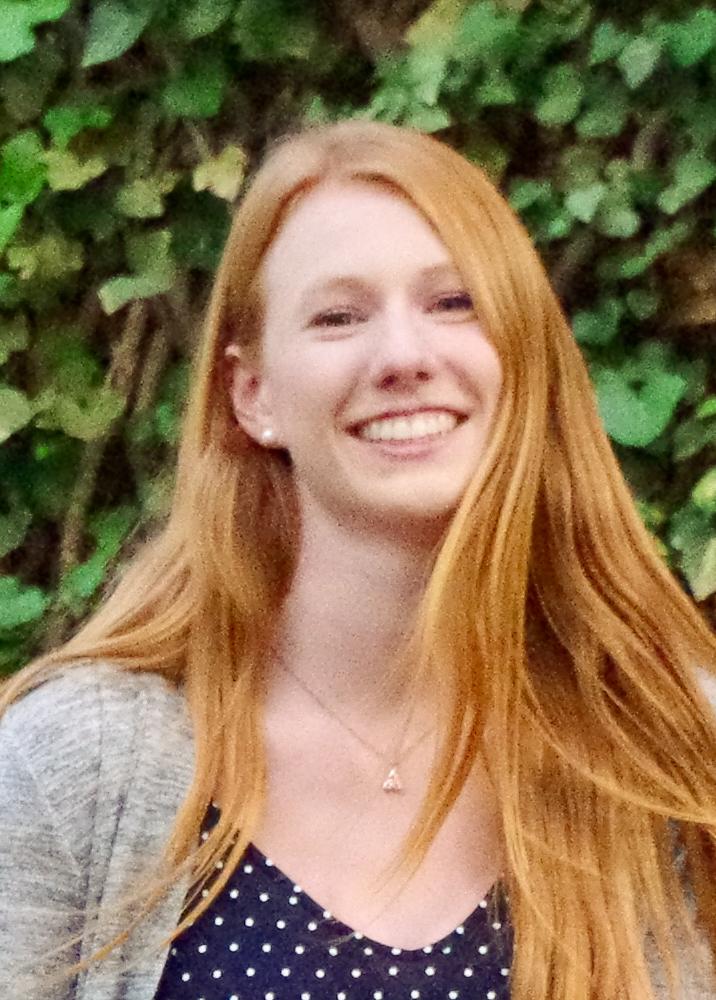
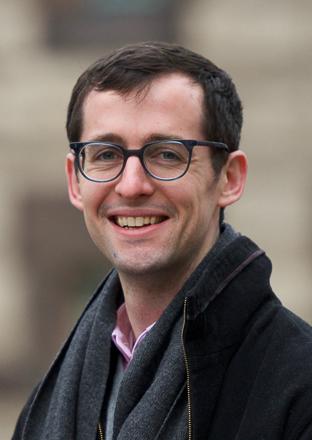
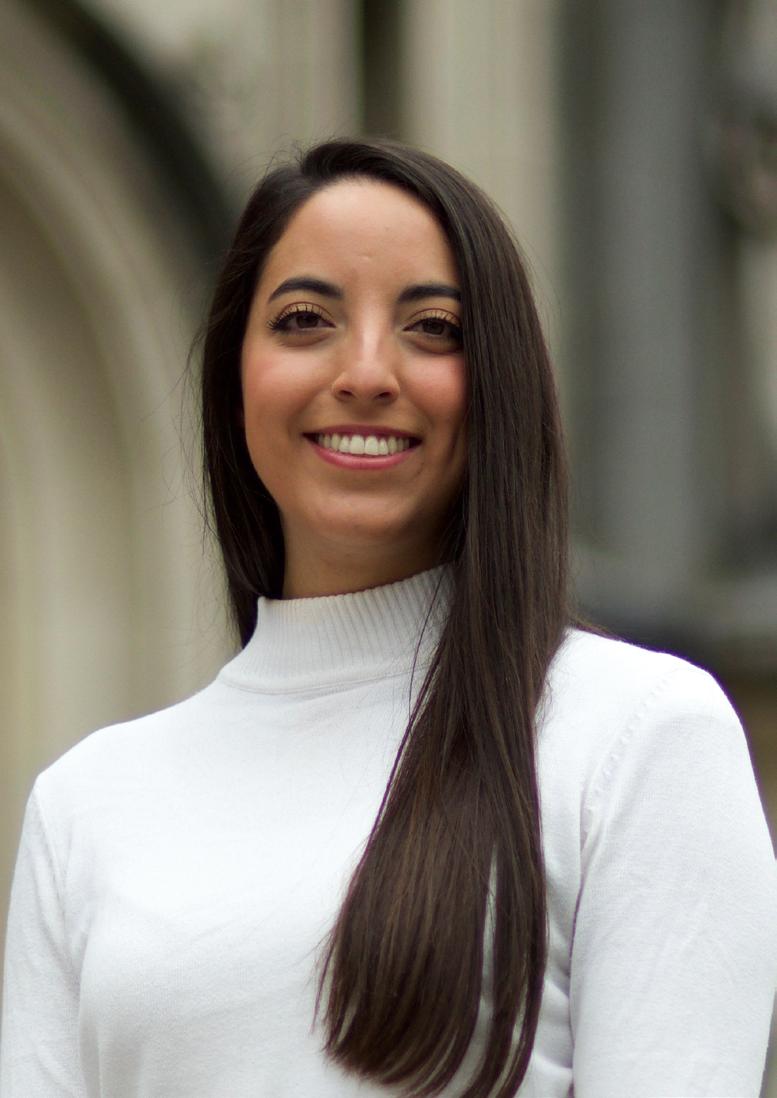

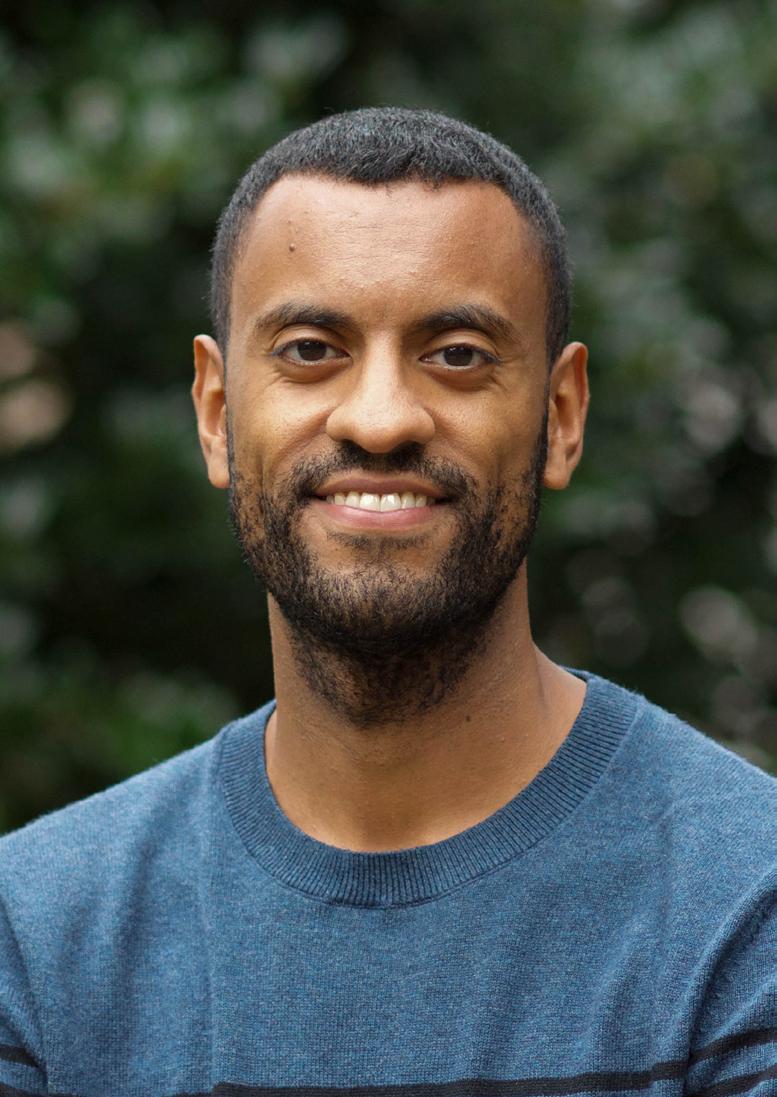
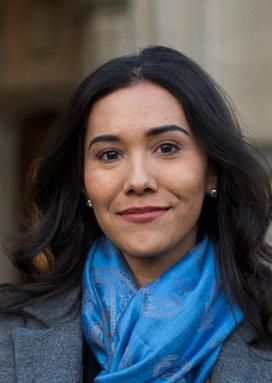
Andre
Kishan A. Bhatt ’17,
David C. Logan MPA ’17, Ph.D. Candidate, Security
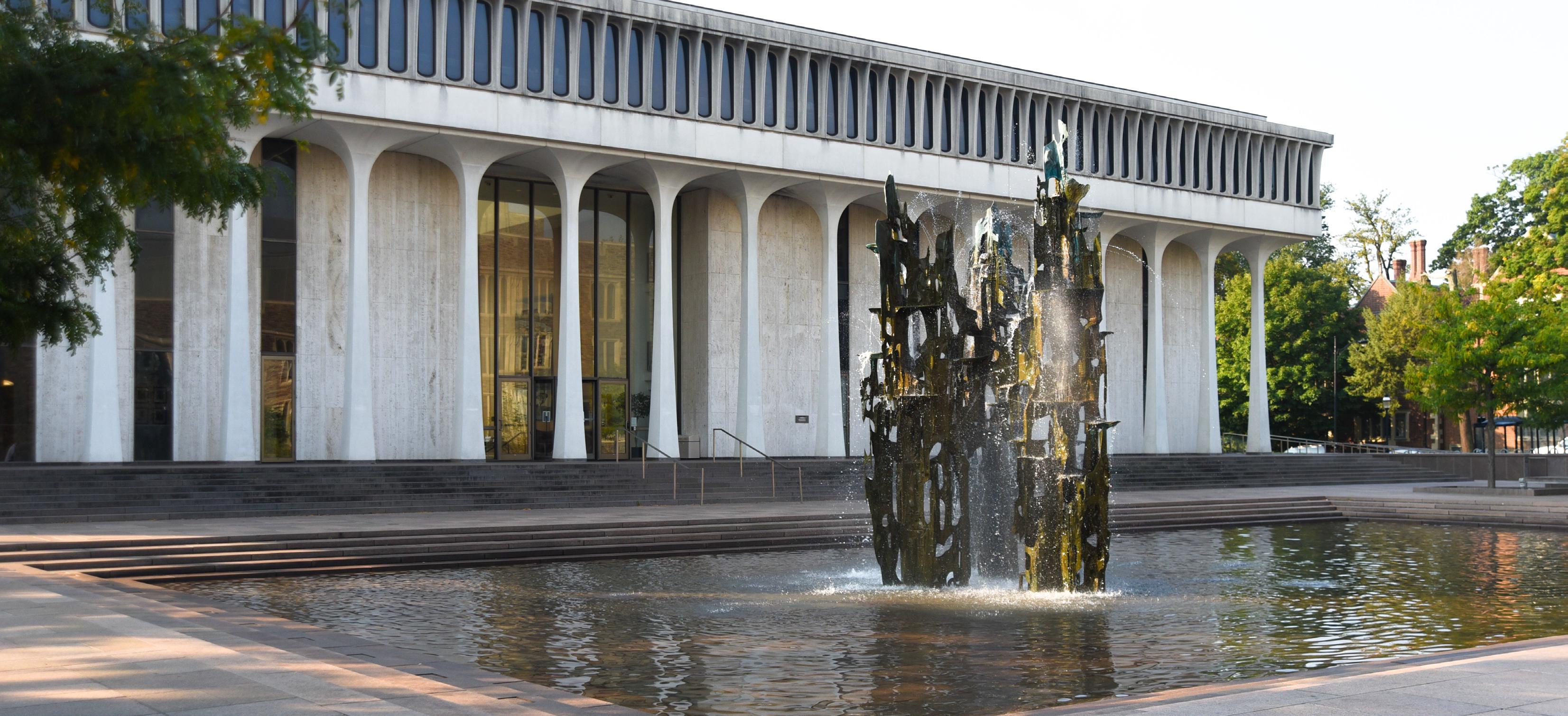
School’s one-year MPP program is
for midcareer professionals who are
leaders in international and domestic public policy. It is an opportunity for those embedded in public service for seven or more
expand their knowledge in relation to their chosen professional path.
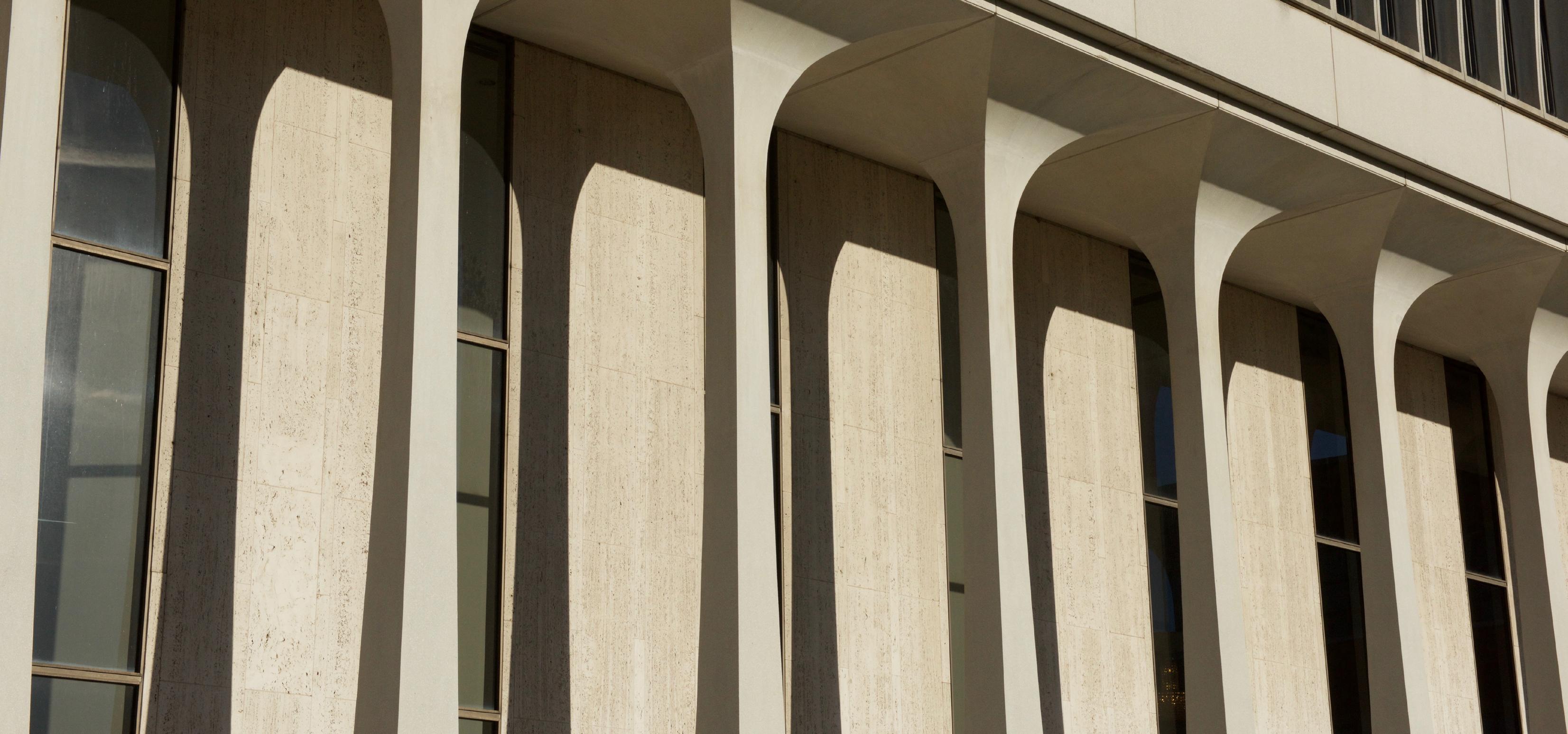
U.S. admits self-
students
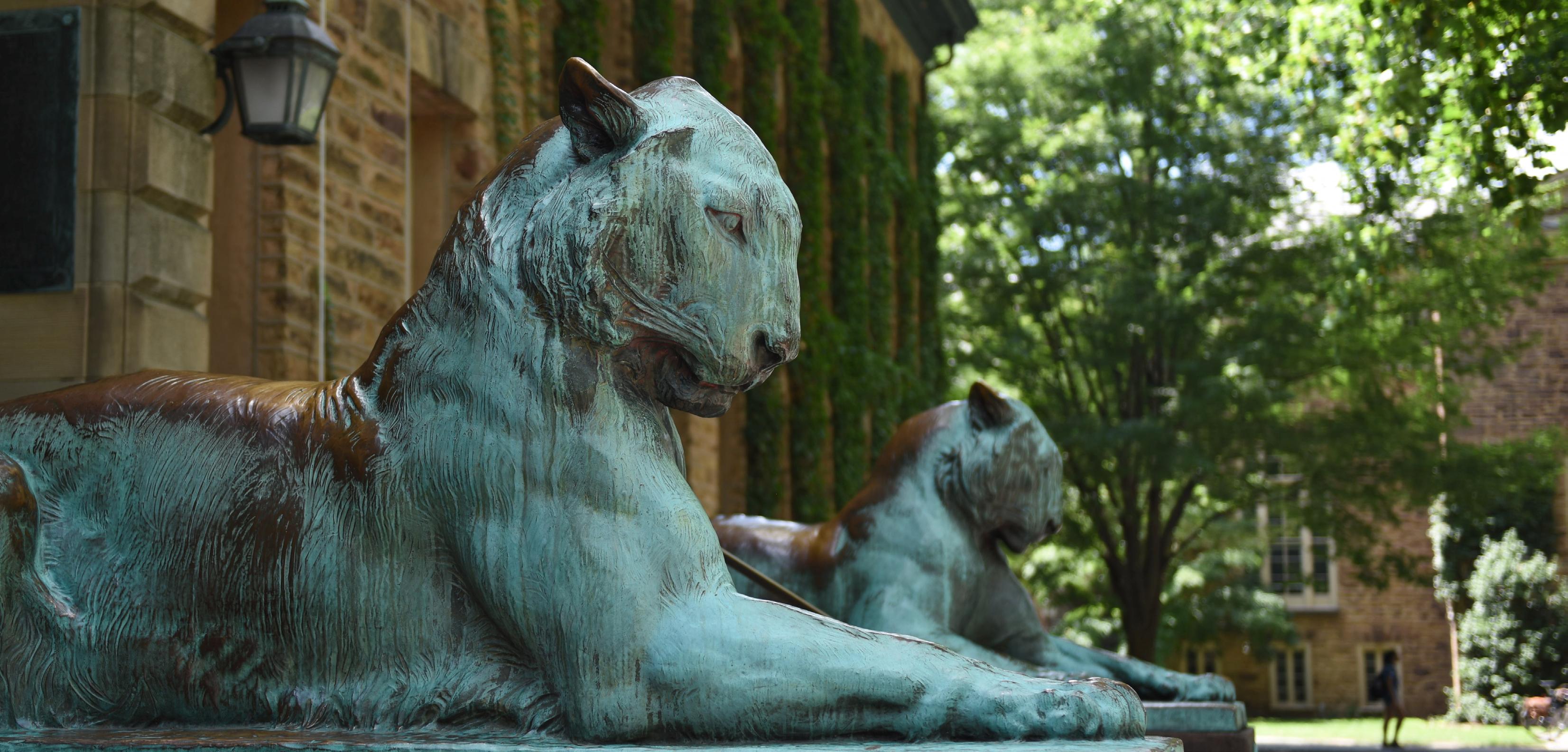
TOPICS STUDIED IN 2019-20
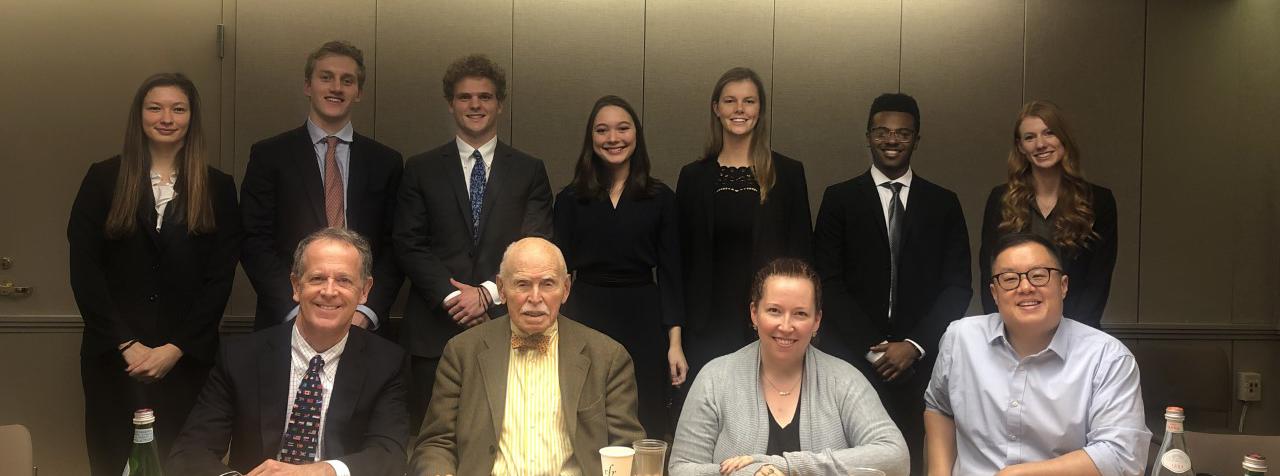
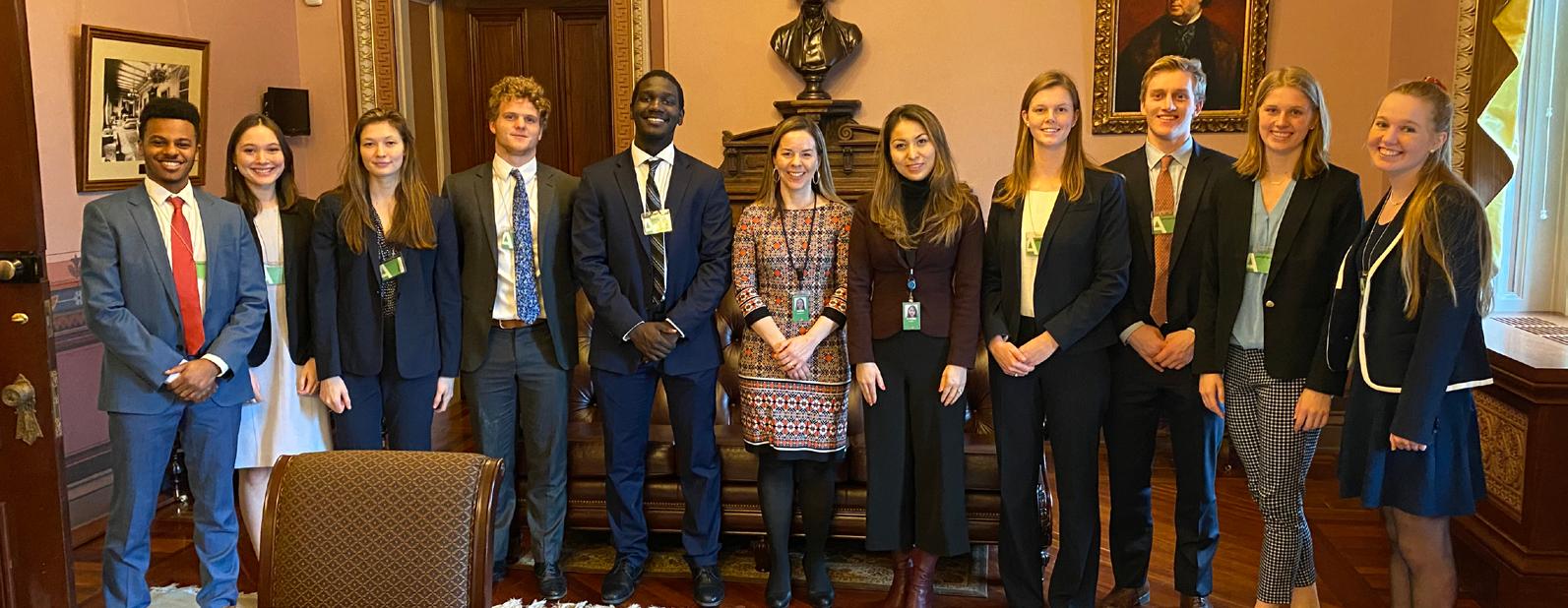
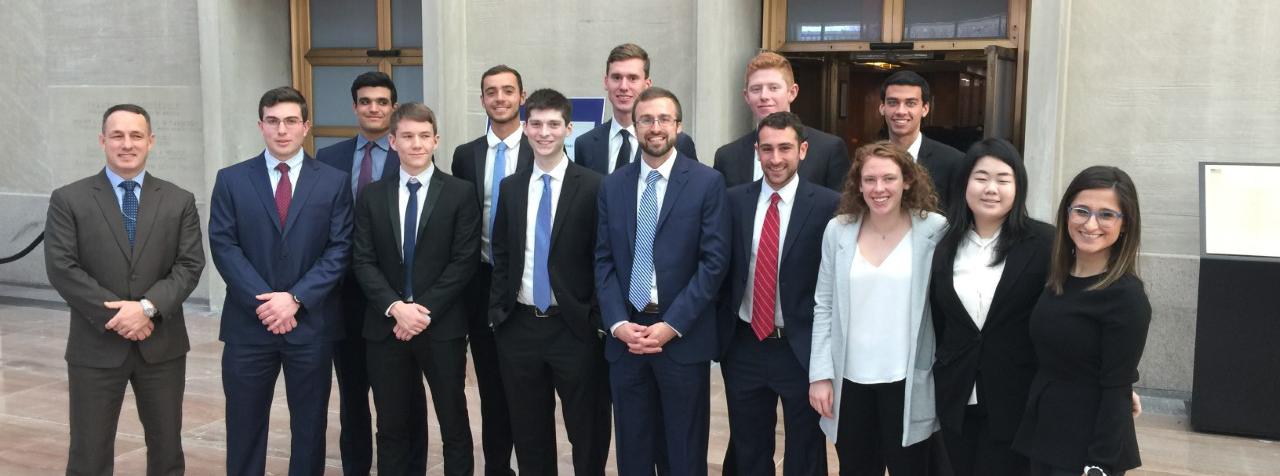
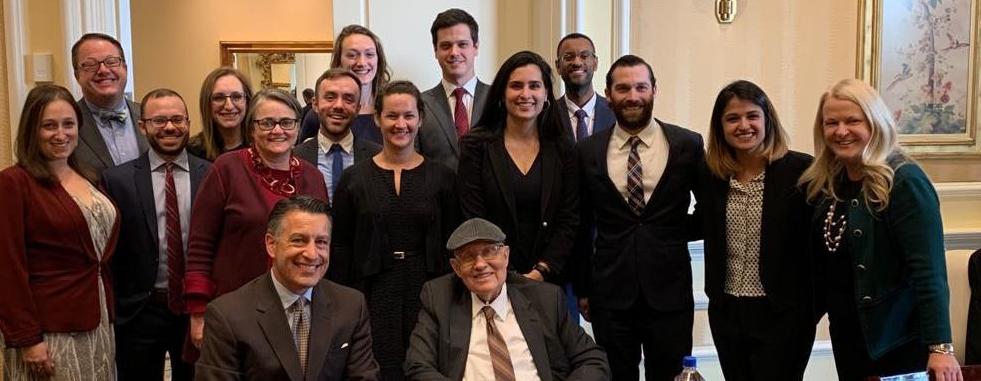
The Policy Task Force (PTF) is a distinctive feature of the undergraduate program and is required for all juniors concentrating in public and international affairs. Each PTF addresses unfinished questions of public policy, often characterized by rapidly changing circumstances, and provides students with experience in academic research, field research, oral presentations, and collective discussion and deliberation. Students combine information from their individual research, guest speakers, field visits, and group discussions to write individual papers and create a group report with recommendations, which is often presented to real-world clients.
Fall 2019
Frederick D. Barton, Lecturer in Public and International Affairs and Co-Director, Scholars in the Nation’s Service Initiative
The Planet Is Warming: Can the Paris Agreement Meet the Challenge?
Gregory B. Jaczko, Former Chairman, U.S. Nuclear Regulatory Commission
The European Refugee Crisis, Four Years On: Domestic and Regional Policy Challenges
Ensuring Educational Equity in K-12 Classrooms
Bari Erlichson, Former Assistant Commissioner, New Jersey Department of Education
Alternatives to the Current USA Social Safety Net Henry Coleman, Extension Specialist and Professor of Public Policy, Rutgers University
Rethinking Criminal Justice: Policy Responses to Mass Incarceration Udi Ofer, Deputy National Political Director, American Civil Liberties
Union (ACLU) and Director, ACLU’s Justice Division
Improving Health Care for Vulnerable Populations in the U.S. Heather H. Howard, Lecturer in Public Affairs and Director, State Health and Value Strategies
China, the Rule of Law, and Fundamental Rights: Engagement or Confrontation
Martin S. Flaherty, Visiting Professor of Public and International Affairs
Barbara C. Buckinx, Associate Research Scholar and Lecturer in Public and International Affairs
Spring 2020
Mainstreaming Climate/Environment in Asia
Jin Sato, Professor, Institute for
Advanced Studies on Asia, University of Tokyo
Leadership in Protracted Conflicts Amb. Daniel C. Kurtzer, Lecturer and S. Daniel Abraham Professor of Middle East Policy Studies
Democracy and Governance in Developing Countries Carol L. Martin, Lecturer of Public and International Affairs
Improved Humanitarian Response to Natural Disasters: Addressing the Needs of Crisis-Affected Communities and Countries
Douglas Mercado MPP ’07, Visiting Lecturer in Public and International Affairs
Urban Homelessness: Policies, Politics, and Values Anthony Shorris, Visiting Lecturer and John L. Weinberg/Goldman Sachs & Co. Visiting Professor
Fixing the Health Care System: Is There an Ideal Model?
Brittany L. Holom, Lecturer in Public and International Affairs
Graduate policy workshops allow students to use their acquired analytical skills to evaluate complex and challenging policy issues — usually for real-world government or nonprofit clients. The goal of the workshops is for students to understand an issue in great depth and to make policy recommendations that are both creative and realistic, given the relevant institutional and political constraints. Offered each fall semester, workshops consist of eight to 10 students and typically include field research during fall break. At the conclusion, students produce a final report and present policy recommendations to the client.
Addressing New Jersey’s Rental Housing Affordability Crisis
David N. Kinsey, Visiting Lecturer in Public and International Affairs
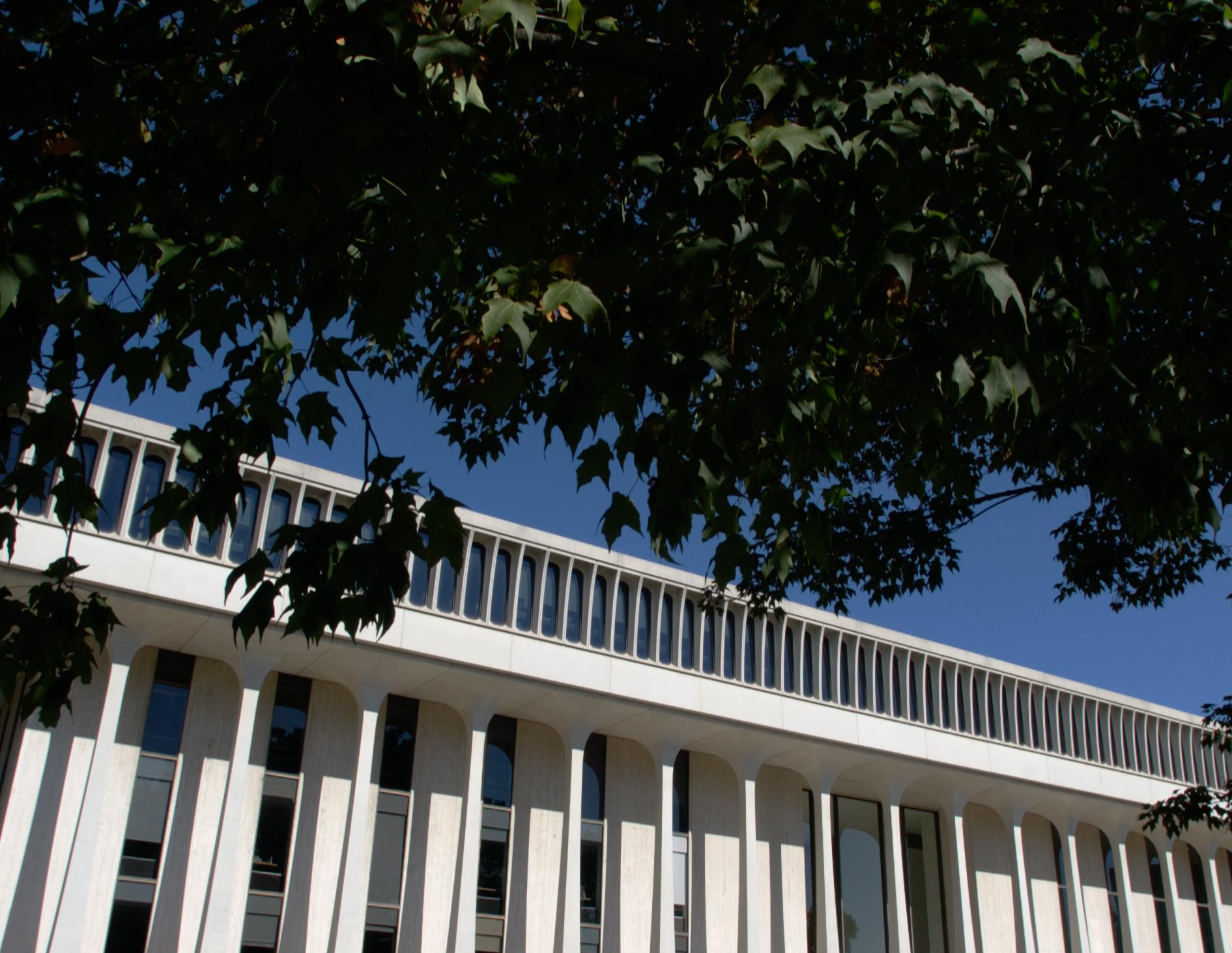
Seattle and the Future of Work
Steven Strauss, Lecturer and John L. Weinberg/ Goldman Sachs & Co. Visiting Professor
United States Policy on the Western Sahara Dispute: Overview and Recommendations
Amb. Daniel C. Kurtzer, Lecturer and S. Daniel Abraham Professor of Middle East Policy Studies
China’s Belt and Road: Determining a U.S. Response
Mary Beth Goodman, Visiting Lecturer in Public and International Affairs
Health Care Reform in the U.S.
Heather H. Howard, Lecturer in Public Affairs and Director, State Health and Value Strategies; and Daniel J. Meuse, Deputy Director, State Health and Value Strategies
Preventing Violent Extremism
Ethan Kapstein, Visiting Professor in Public and International Affairs
Improving Coastal Resilience: Toward a New National Flood Hazards Reduction Program
Guy J.P. Nordenson, Professor of Architecture
Each year, Princeton seniors from all areas of study and first-year SPIA master’s students can apply to the Scholars in the Nation’s Service Initiative (SINSI), a program that fully funds professional work experiences in government, as well as study in the MPA program.
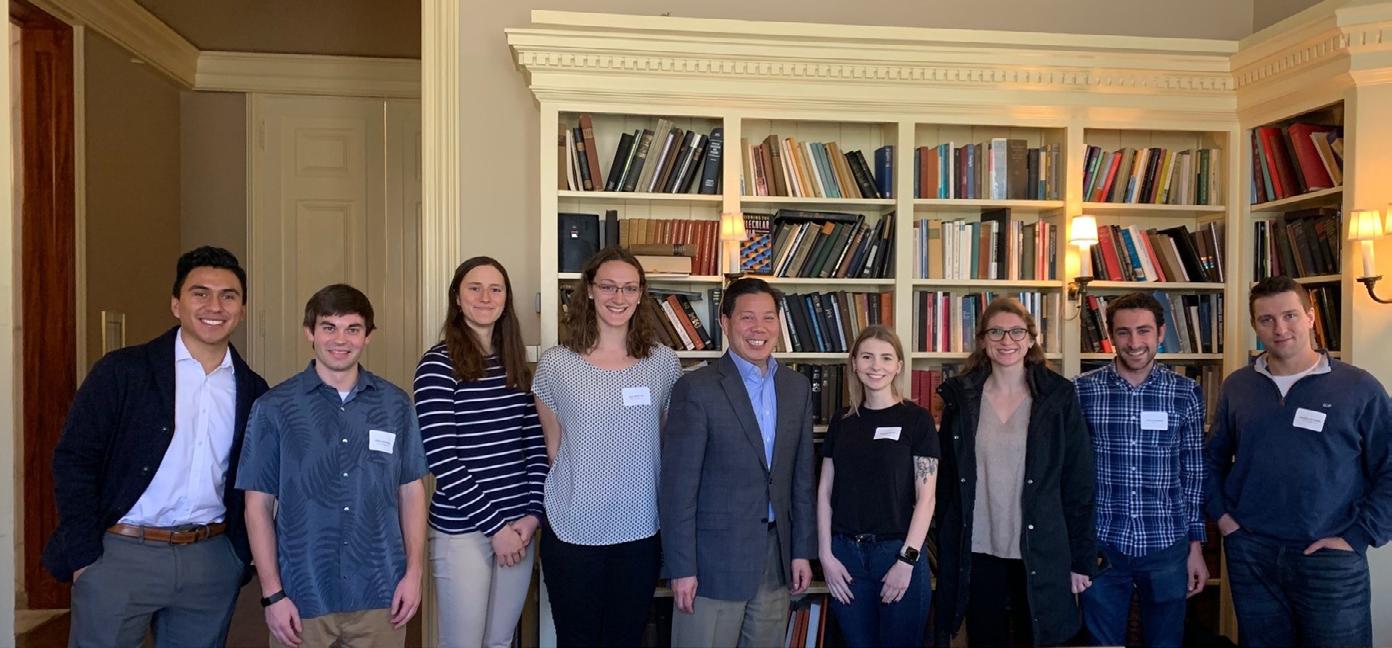
Since September 2016, SINSI has been co-directed by Frederick D. Barton, lecturer of public and international affairs, and Kathryn Lunney.
The competitive program serves:
• Approximately seven undergraduate students per year for eight- to 10-week summer internships.
• Approximately four graduate scholars per year who join the program for four years, including two years of study in the MPA program, with two years of fellowship work for the federal government in between the first and second year of the academic program.
Eleven Princeton students were selected for the 2020 SINSI cohort. The graduate scholars will begin the first year of the MPA program in fall 2020. Despite the Covid-19 pandemic, placement of the 2020 SINSI summer interns proceeded smoothly. Six of the seven interns were able to onboard remotely into their chosen organizations without issues. The final student was notified in late spring that her chosen organization was canceling internships for the summer; however, a different organization was identified, and she also started on time.
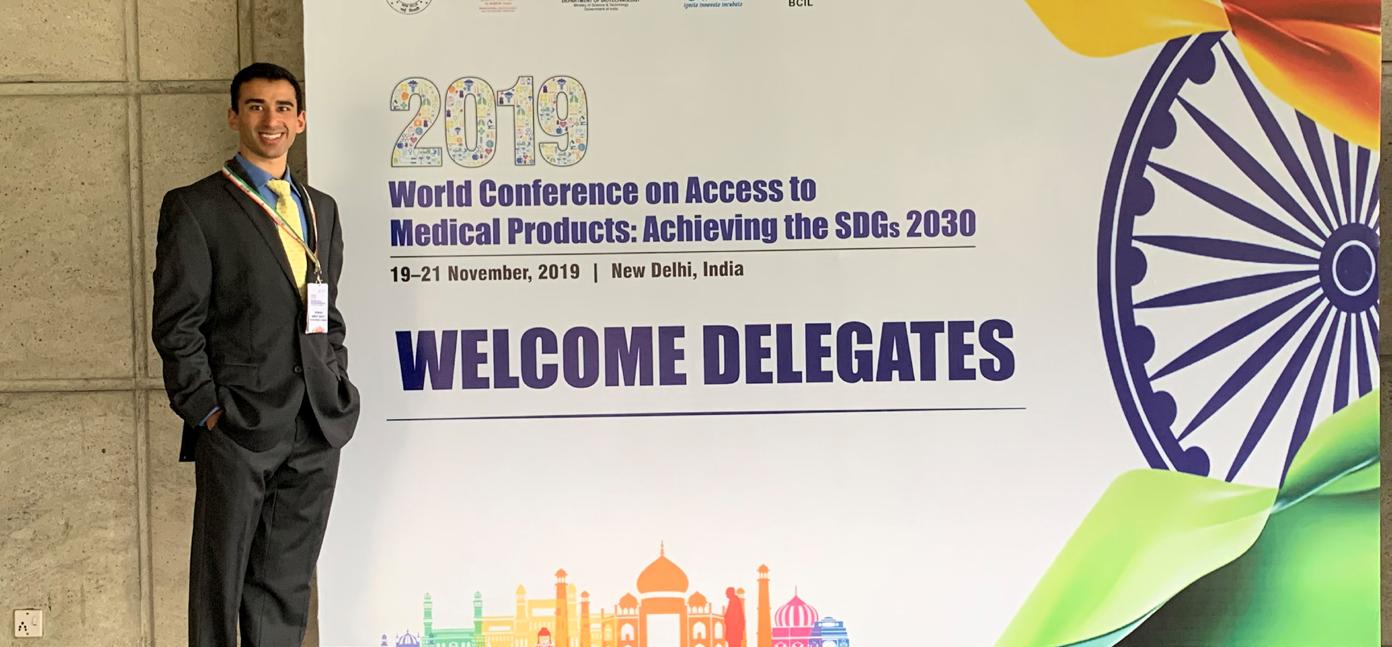
The final two recipients of the Ullman Fellowship, Paulina López González MPA ’19 and Tom Clark MPA ’21, were selected in 2018 and began their fellowships in summer 2019, both working in the field this past academic year. Clark has completed his fellowship year, working for the World Food Programme in Myanmar and Bangkok, and will be entering the second year of the MPA program this fall. López González, who was introduced to the work of labor activist Ai-jen Poo during her visit to the School in November 2017, is near completion of her fellowship at the D.C. office of the National Domestic Workers Alliance.
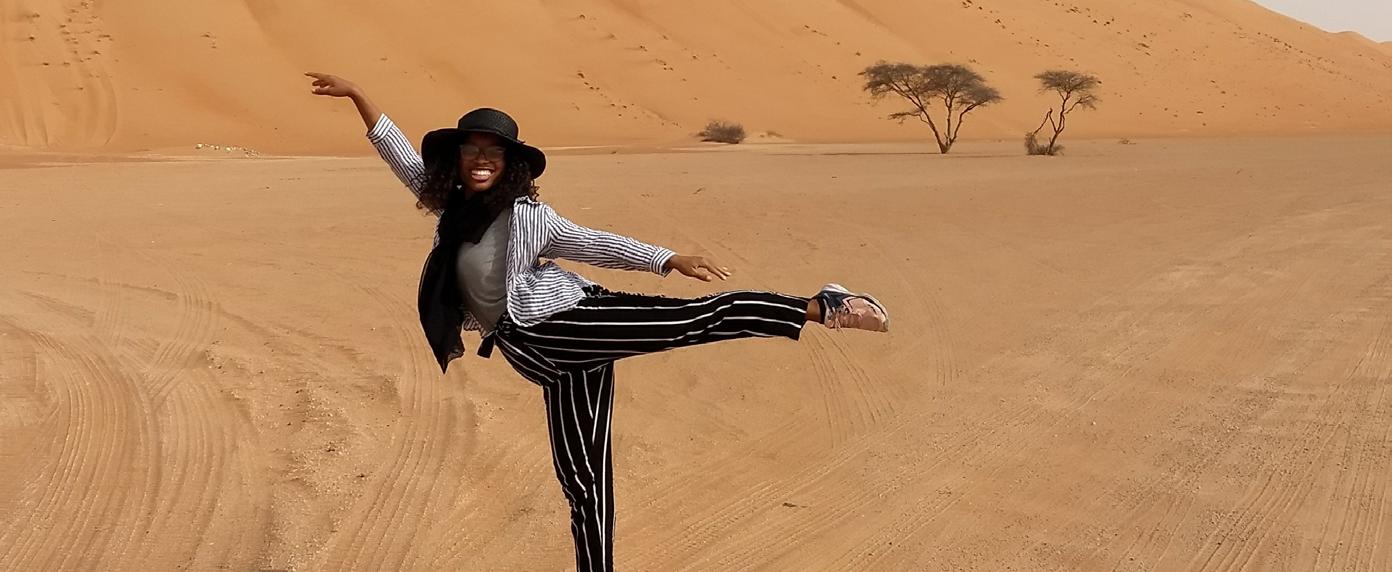
The Ullman Fellowship honored the late Richard H. Ullman, the David E. Bruce Professor of International Affairs, Emeritus. Ullman published hundreds of academic papers on foreign policy, helped to compile the Pentagon Papers, and served in many governmental, journalistic, and academic positions. He was a distinguished scholar of international affairs at Princeton for more than 40 years.
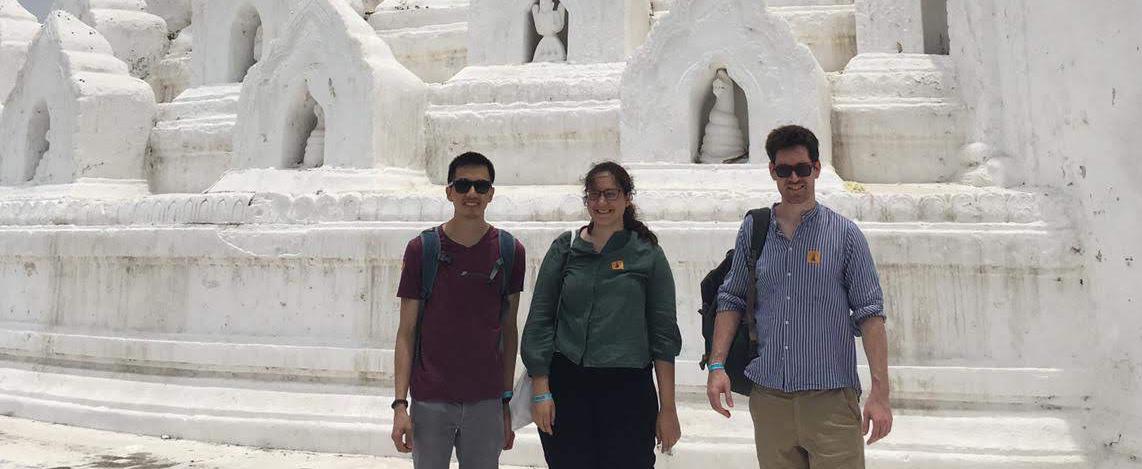
Our students are fully engaged in learning about public policy outside the classroom. Students attend lectures by leading policymakers and practitioners, participate in extracurricular organizations, and conduct fieldwork around the globe.

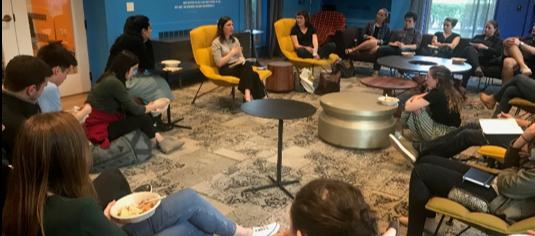
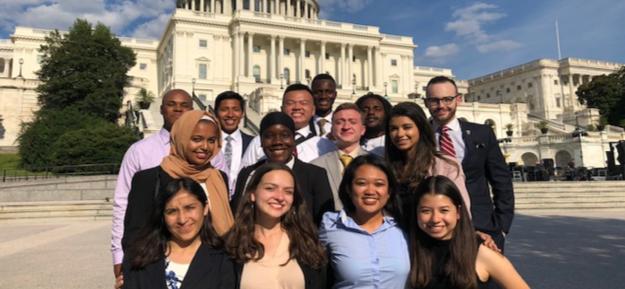
As members of small cohorts in full-time residential programs, our students get to know their classmates and learn from each other’s diverse experiences, interests, and backgrounds.
Our students also participate in extracurricular student organizations, both at the School and across campus. Below are the School’s officially recognized organizations.
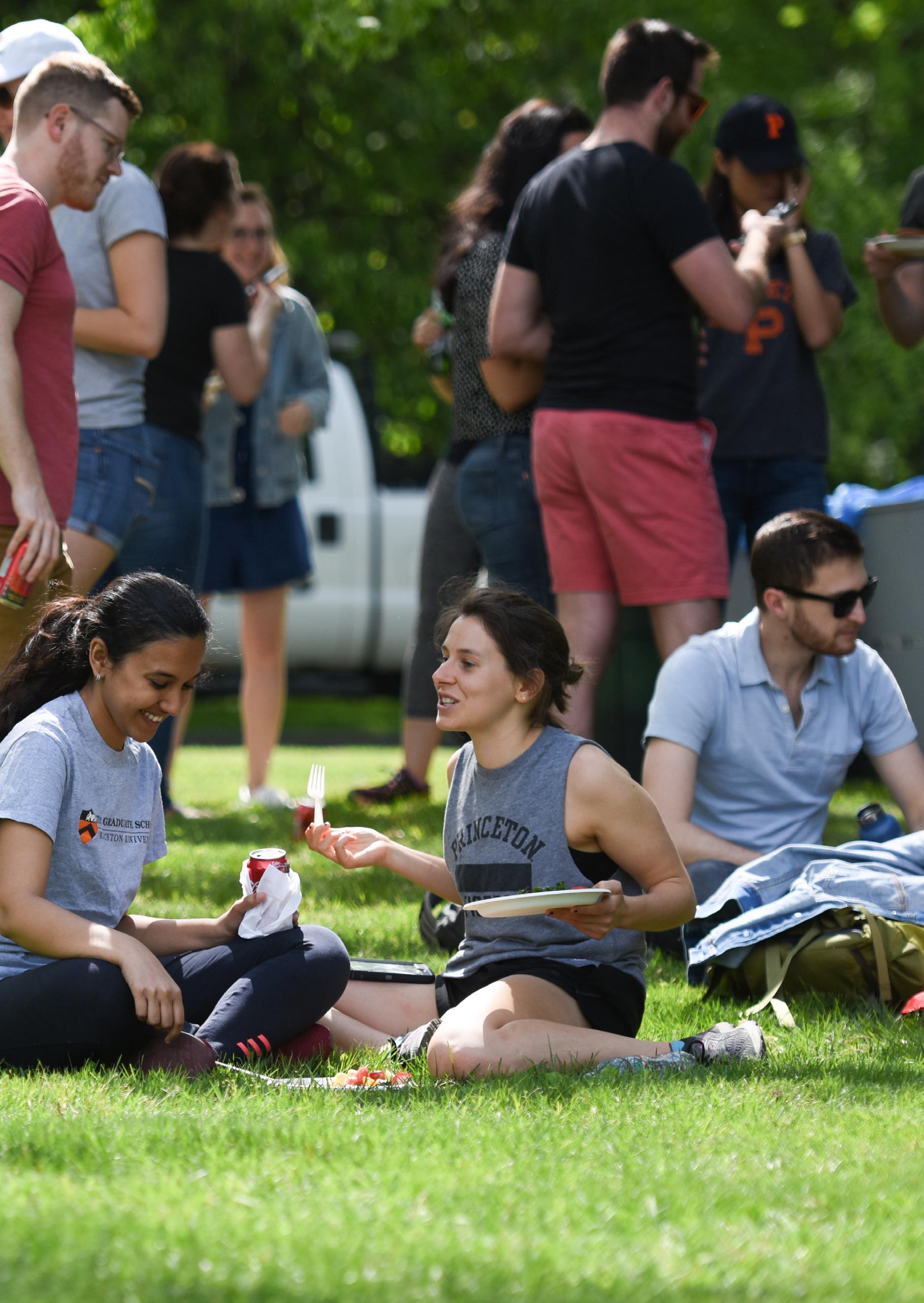
Our students attend lectures by leading policymakers and practitioners, participate in extracurricular organizations, and conduct fieldwork around the globe. A highlight is the Leadership Through Mentorship Program, which brings high-level policy leaders and practitioners to campus for two to three days. They attend classes, have meals with students, conduct office hours, and some deliver public lectures. Below are the 2019-20 guests.
Joel Benenson
Leading Democratic Pollster (President Obama’s 2012 and 2008 campaigns); Founder and CEO, Benenson Strategy Group
Fatima Goss Graves President and CEO, National Women’s Law Center
Lt. Gen. Roméo Dallaire
Former Force Commander, United Nations Assistance Mission in Rwanda
Andrew Gillum
Chair, Forward Florida Action; 2018 Democratic Nominee for Governor of Florida; Former Mayor of Tallahassee
Staffan de Mistura
Former U.N. Special Envoy for Syria Robert Doar ’83 President, American Enterprise Institute
*David Ignatius
Foreign Affairs Columnist, The Washington Post; Novelist
*Bill Haslam
Former Governor of Tennessee
*Dr. Agnes Binagwaho
Vice Chancellor, University of Global Health Equity; Former Minister of Health in Rwanda
*Shaun Donovan
Jennifer Rubin
Conservative Opinion Writer, The Washington Post
Carmen Rojas
Incoming President and CEO, Marguerite Casey Foundation; Founder, The Workers Lab Cami Anderson
Founder and Managing Partner, ThirdWay Solutions; Former Superintendent, Newark Public Schools
Chris Lu ’88
Former U.S. Deputy Secretary of Labor (2014-2017); Former Assistant to the President and White House Cabinet Secretary (2009-2013)
H.R. McMaster Former National Security Advisor (2017-2018) Sarah Kliff Health Care Investigative Reporter, The New York Times
Former U.S. Secretary of Housing and Urban Development (20092014); Former Director of the Office of Management and Budget (20142017)
*Amb. Juan Carlos Pinzón MPP ’10
President, ProBogota; Former Ambassador of Colombia to the U.S.
*Musimbi Kanyoro
Former President and CEO, Global Fund for Women; Human Rights Activist
*
Six public lectures, six leadership guests, and seven lunch-timers were scheduled, but canceled, due to Covid-19.
* These six guests were scheduled, but canceled, due to Covid-19.
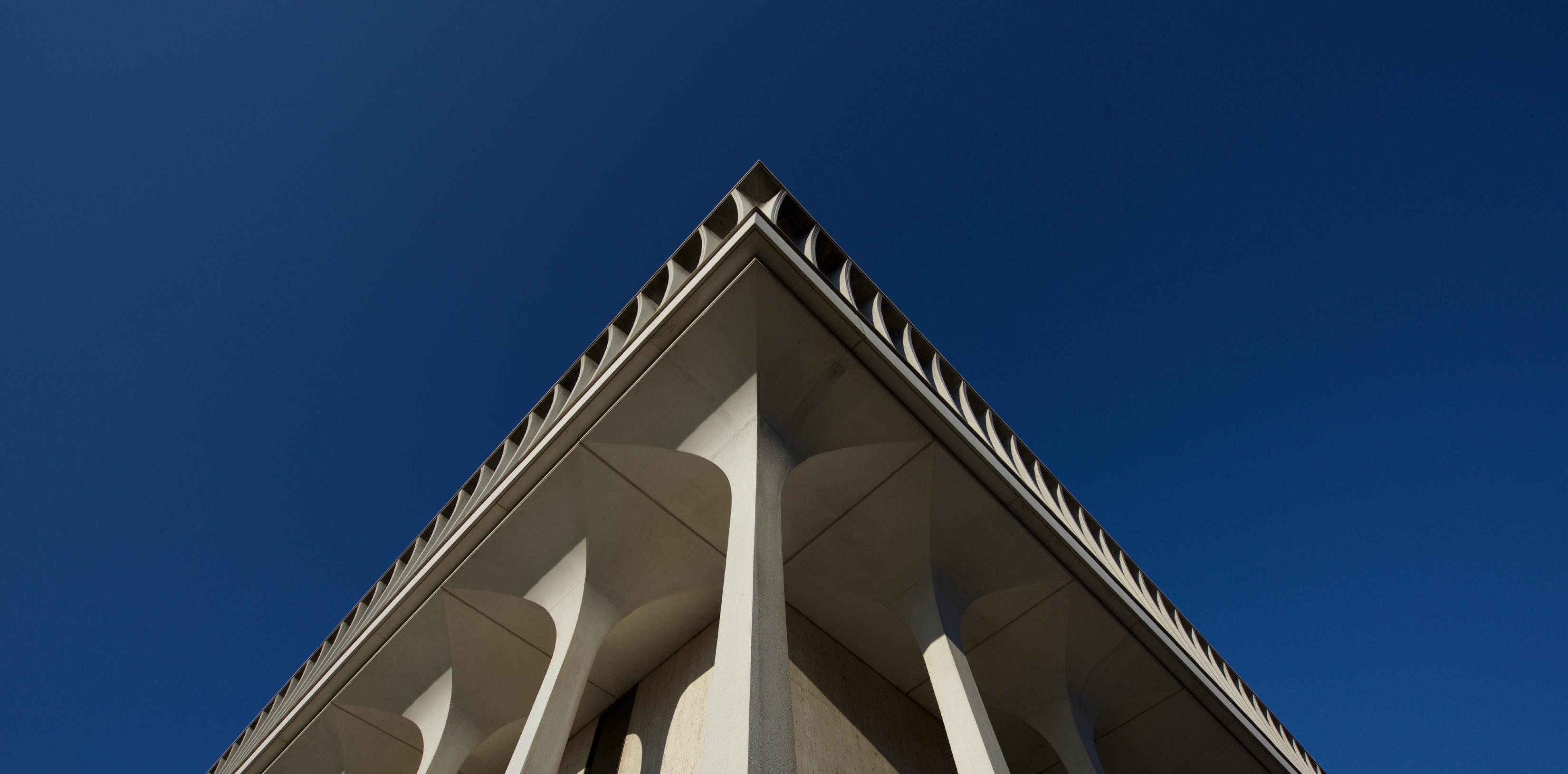
Princeton’s informal motto captures the essence of the Princeton School of Public and International Affairs and is embodied not only in our curriculum — designed to prepare students to pursue careers in public service — but also in the activities our students pursue outside of the classroom.
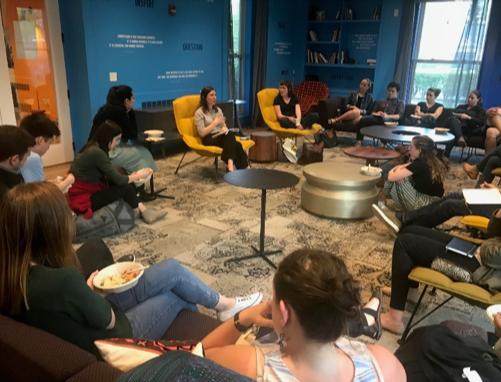
For the past six academic years, our graduate students have organized and hosted a Service Auction to raise funds for Isles — a community development organization based in Trenton, New Jersey, which fosters self-reliant families and healthy, sustainable communities. This past December, the students’ efforts raised more than $19,100 for the nonprofit, founded in 1981 by Princeton alumnus Marty Johnson ’81.
The School’s Graduate Program Office also has organized a Community Service Day at Isles at the start of the fall semester in 2017, 2018, and 2019. Aiming to help students better understand the nature of Isles’ engagement in the community, and to increase knowledge about the broader community in Mercer County, the day included hands-on, on-site volunteer sessions and discussions with Isles staff.
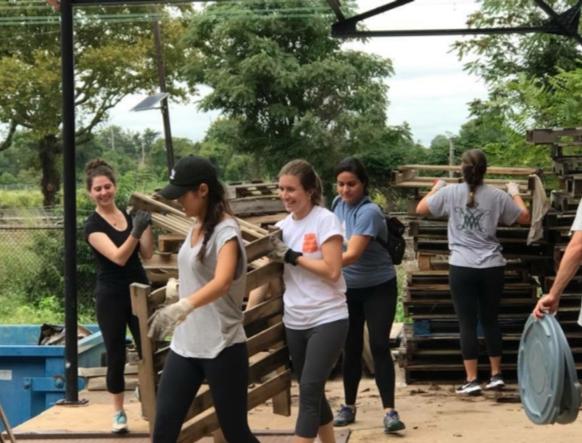

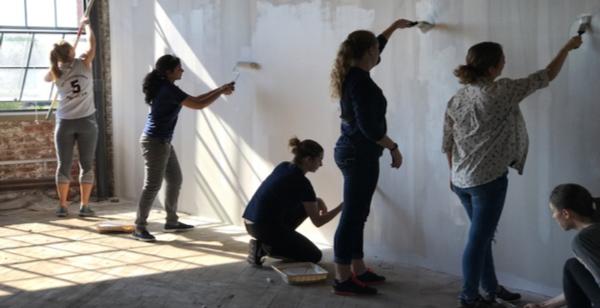
THOSE EMPLOYED
FELLOWSHIPS / INTERNSHIPS
THOSE EMPLOYED
PUBLIC SECTOR
SECTOR
FOCUSED
FOCUSED
THOSE EMPLOYED
PUBLIC SECTOR
NONPROFIT
SECTOR
DOMESTICALLY FOCUSED
FOCUSED
Thirty rising college seniors virtually attended the 2020 Junior Summer Institute, including 26 with U.S. citizenship or permanent residency and four international students from Brazil, Ethiopia, Lebanon, and Vietnam. The students hailed from 28 institutions of higher education and encompassed 22 academic majors. Nearly 75% were Federal Pell Grant recipients, and many were first-generation college students. During the six-week intensive program — hosted annually by the School since 1985 — the students attended classes via Zoom, with the traditional curriculum modified to meet the challenges presented by the Covid-19 pandemic. Students participated in fast-paced coursework in statistics, and Vice Dean Miguel A. Centeno taught a course on Global Systemic Risk. A lunch series complementing the formal curriculum featured panels of JSI and MPA alumni, overviews of other Princeton programs such as Princeton in Africa and Princeton in Latin America, and presentations by the School’s faculty on topics such as health policy and racial democracy in America.
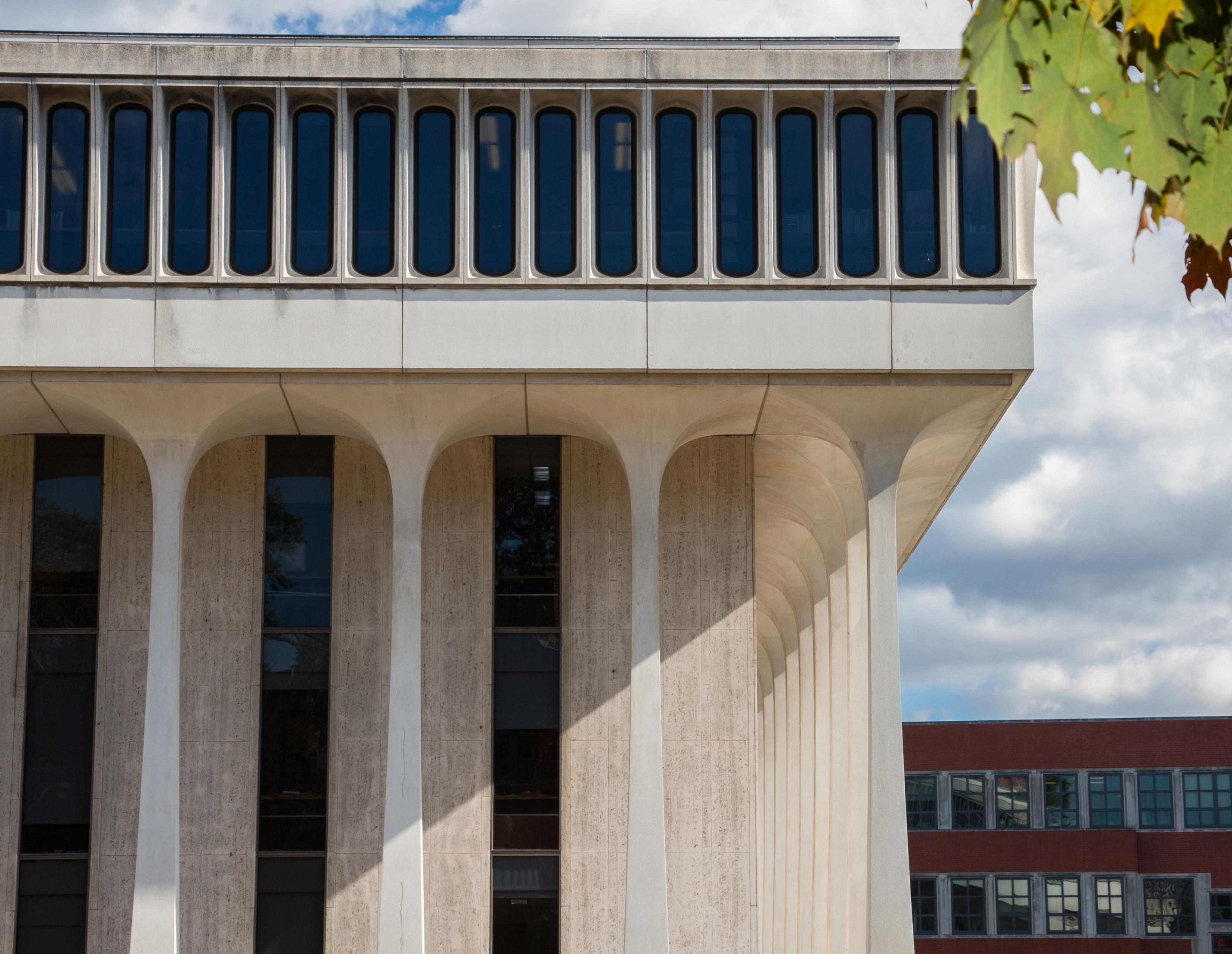
Robertson Hall, the main building of the School, was built in 1965 as a result of a gift by Charles Robertson ’26 and Marie Robertson. Designed by renowned architect Minoru Yamasaki, the building is an architectural icon on campus.
In 2015, the School underwent a comprehensive strategic planning process that identified key goals and objectives for its future. This included a more collaborative, efficient environment for teaching and research.
To this end, KPMB Architects was retained to oversee the redesign and renovation of Robertson Hall. Construction began in February 2019 and was completed in summer 2020.
An ongoing newsletter kept faculty, staff, students, alumni, and campus neighbors updated on the project’s progress and the significant changes to Robertson Hall — including a new rear exit in Arthur Lewis Auditorium; operable windows on the second, third, and fourth floors; new double-door vestibule entrances to Dodds Atrium; and an updated design aesthetic throughout with new office fronts, modular furniture, flooring, and paint.
Despite construction projects across the U.S. being halted or delayed due to Covid-19, Reimagining Robertson remained on schedule. From protective gear to social distancing protocols, every precaution to protect workers was implemented. Office belongings were transported by a moving vendor from the School’s swing space of Green Hall back to Robertson Hall in July 2020.
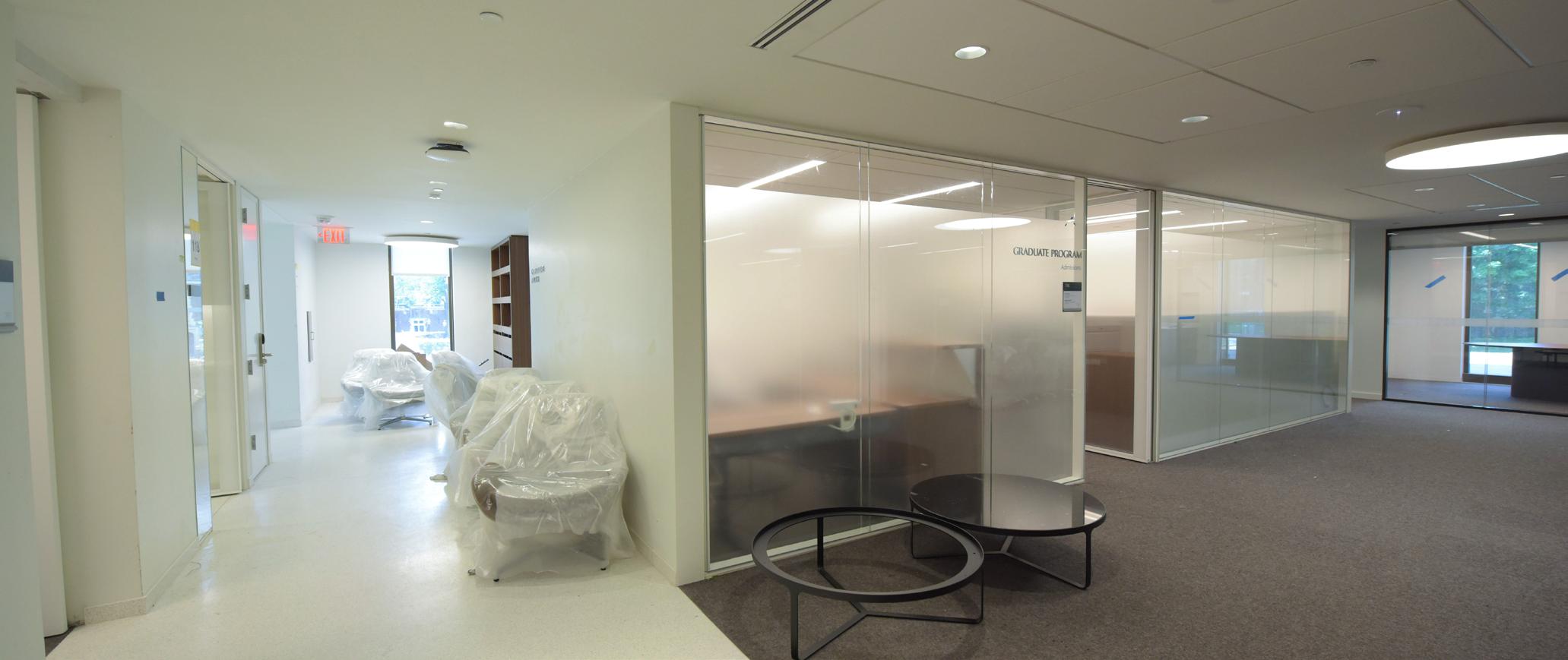
A number of objectives were identified and incorporated into the redesigned space. These included improving acoustic performance, thermal comfort, and wayfinding; demonstrating a commitment to sustainability, health, and well-being; and responding to the unique architectural heritage of Robertson Hall while ensuring that interior spaces were both flexible and durable.
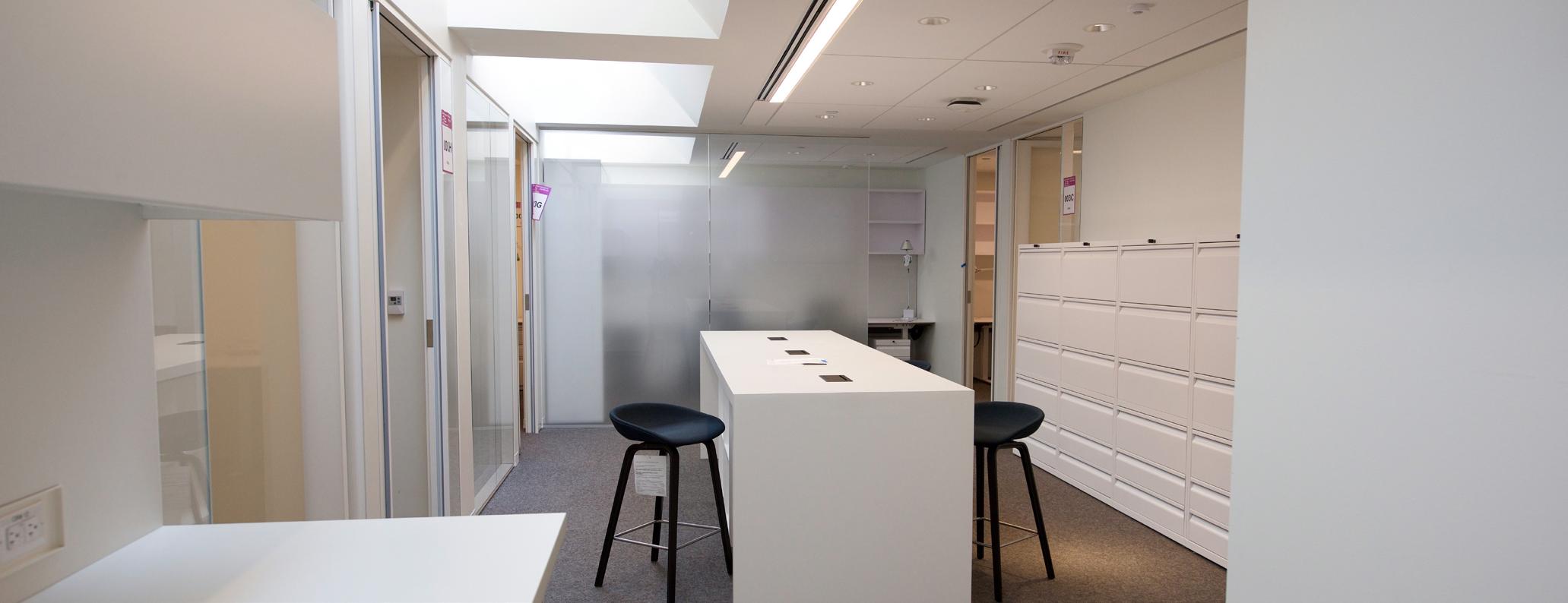
The newly redesigned space provides a highly collaborative environment that respects the building’s original structure while meeting the 21st century needs of its faculty, staff, and students.
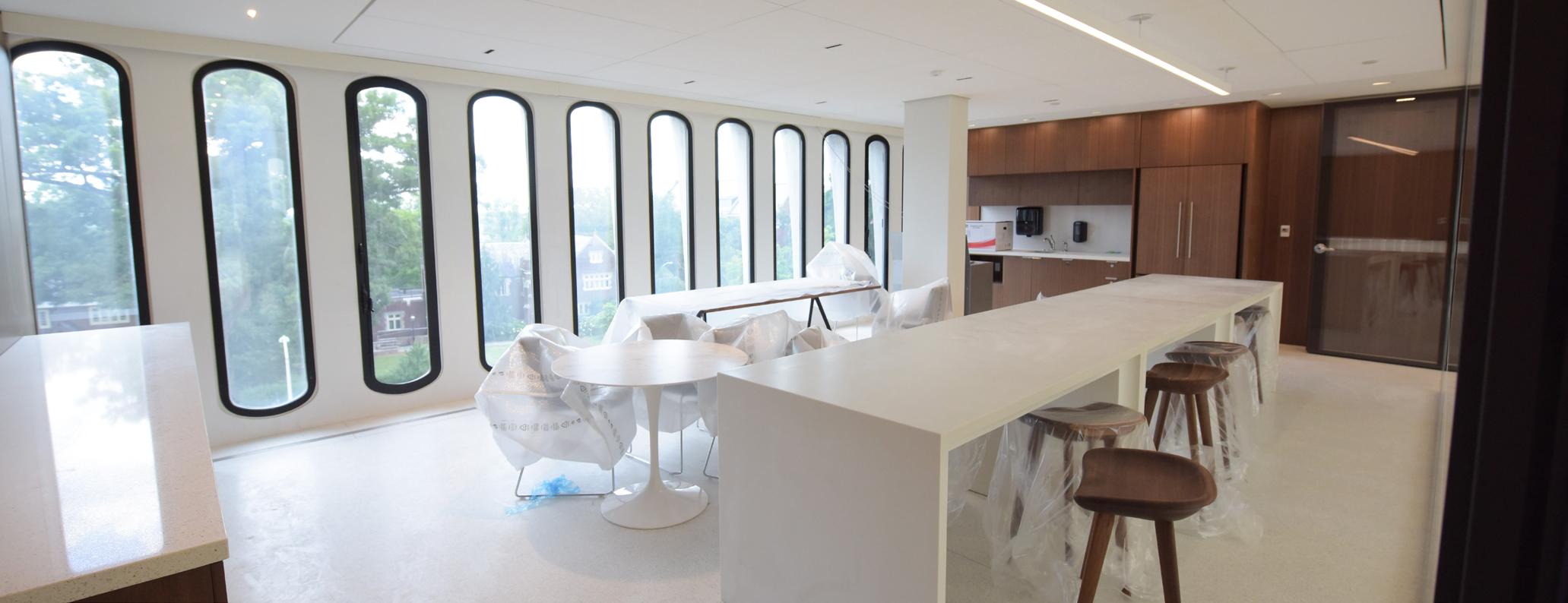
The School redesigned its website this year, launching a modern and accessible site in July 2020. The redesigned website features a new information architecture, visual framework, and content strategy that better speaks to the School’s core audiences and values.
Led by Evolving Web, a Montreal-based team of experts in the Drupal content management system, the yearlong project included a number of meetings with a faculty committee and other stakeholders, including current students and administrative leadership.
Work included validating and refining user personas, user testing and research, creating wireframes and high-fidelity mock-ups, and content revision and migration. Technical development was performed in tandem, following an agile methodology with two-week sprint cycles, weekly checkins, status reports, and demos.
In addition to the new design and architecture, each page of both the internet and intranet was rewritten for brevity and clarity. New landing page messaging was developed to align with the School’s new mission statement and statement of commitment to diversity, equity, and inclusion.
The updated design emphasizes the School’s identity and seeks to create an engaging digital experience while meeting the needs of students, faculty, staff, alumni, campus partners, and community members. Having launched ahead of schedule to align with the School’s name change, work continues on search functionality, representation of faculty teaching and research efforts, and content of lower-level pages.
The School’s Office of Public Affairs and Communications volunteered to build Princeton University’s 2020 Virtual Commencement website — in just one week’s time. Building upon a template created by Web Development Services, the team aimed for accessibility and interactivity. The user-friendly website housed all pertinent information for students and their families, including a celebration kit with downloadable social media assets, a detailed FAQs page, the virtual commencement and graduate hooding
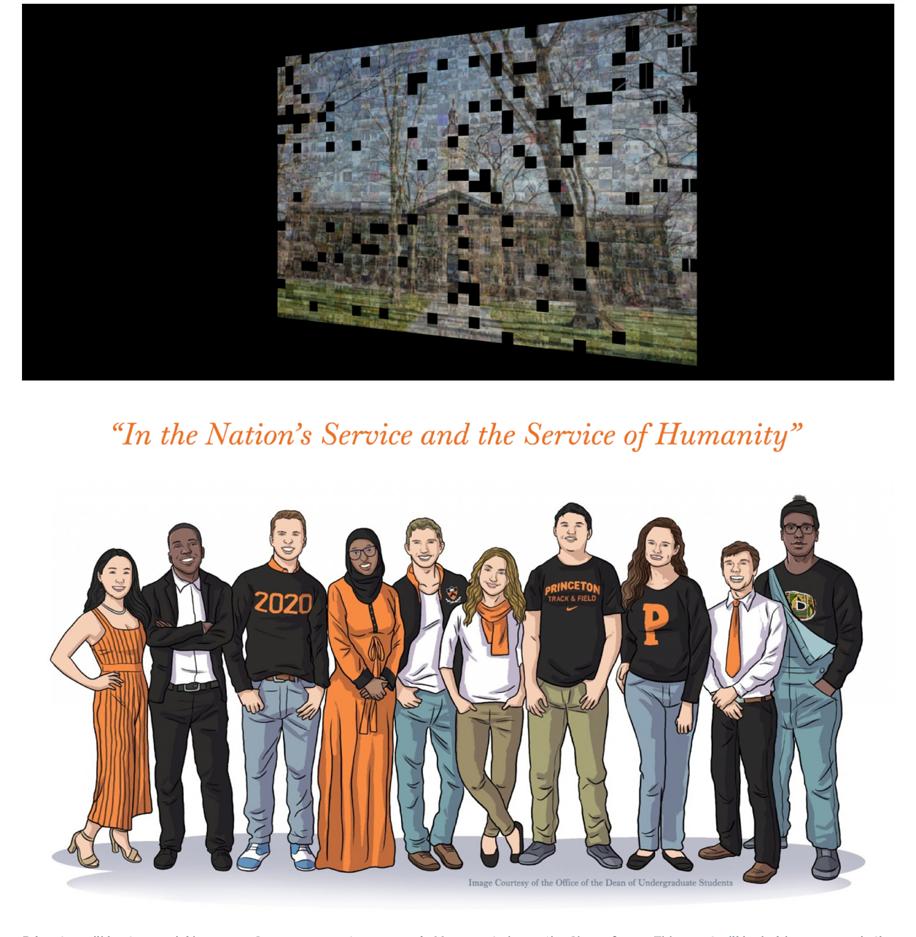


programs, as well as a listing of all departmental events. A social media feed helped students and their families feel virtually connected while a rotating banner displayed campus iconography and past graduations. On the day of each event, the ceremonies were livestreamed on the site.
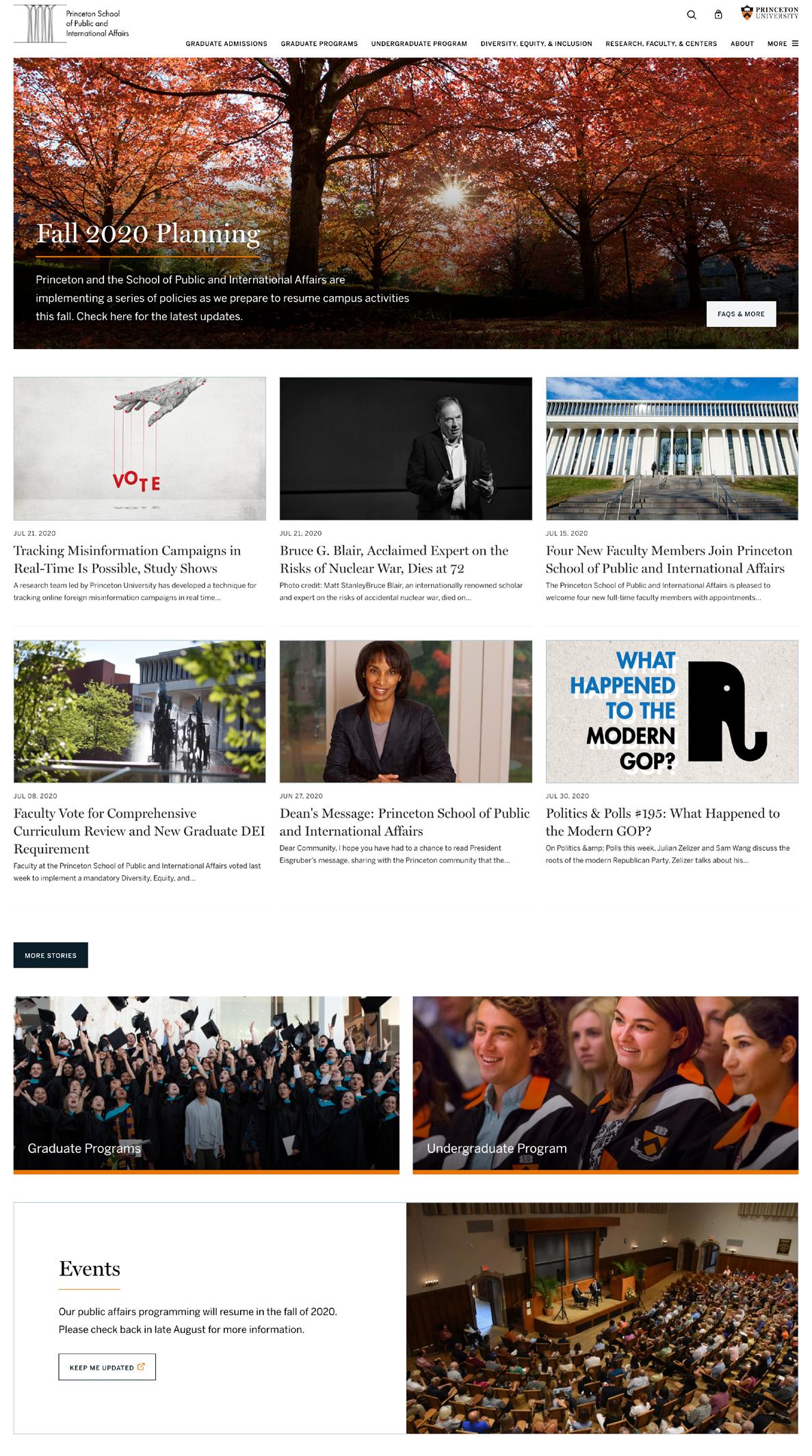
At the request of Dean Cecilia E. Rouse, the School developed its first-ever mission statement. To help facilitate the 10-month project, the School hired CFAR, a private management consulting firm.
CFAR organized in-person focus groups and administered surveys to faculty, students, alumni, as well as high-level administrators. Based on these responses, CFAR compiled an in-depth, comprehensive report about the overall ethos of the School. Using the report as a guide, the School’s faculty developed this mission statement:
The Princeton School of Public and International Affairs dedicates itself to integrating world-class scholarship and a commitment to service in order to make a positive difference in the world.
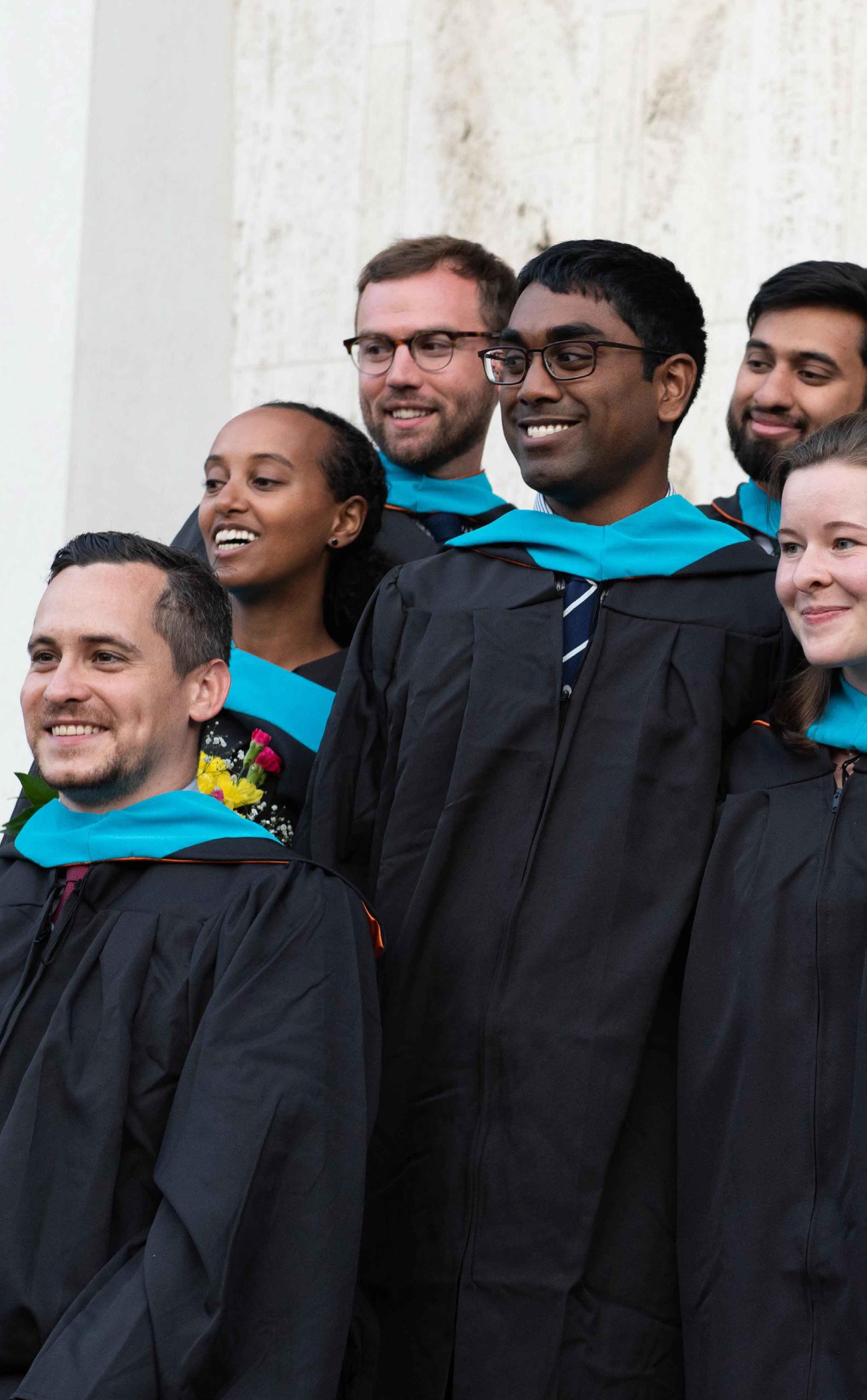
Our faculty, staff, and students develop and lead creative approaches to the challenges of public and international affairs, with particular emphasis on diverse scholarly perspectives and evidence-based analysis.
We welcome a robust exchange of ideas and strive to foster a close-knit community that values and supports every member.
We believe that public policy in the 21st century demands a passion for service, a respect for evidence of unsurpassed quality, a global perspective, and a multiplicity of voices.
In Service to the Nation and Humanity
Alongside the mission statement work, the School also worked on a revision to its Diversity, Equity, and Inclusion statement:
We are committed to ensuring that all members of our diverse community feel respected, supported, and valued both inside and outside the classroom. We seek to strengthen the capacity of our students to promote equity and foster inclusion while here and in the broader world.
“As Vernā Myers, a noted diversity advocate, asserts: ‘Diversity is being invited to the party. Inclusion is being asked to dance.’ And I would add — true equity is being one of the people who has a say in what music is played.” -Dean Cecilia E. Rouse
On June 27, 2020, the Princeton University Board of Trustees voted to remove Woodrow Wilson’s name from the School and rename it the Princeton School of Public and International Affairs. As the Trustees noted in their statement, the decision was made because Wilson’s “racist thinking and policies make him an inappropriate namesake for a school or college whose scholars, students, and alumni must stand firmly against racism in all its forms.”
Affairs, and our entire community with a firm foundation to pursue the mission of teaching, research, and service that has defined our highest aspirations and generated our greatest achievements throughout our history and today,” said Princeton President Eisgruber.
In summer 2020, faculty at the School voted to implement a mandatory Diversity, Equity, and Inclusion (DEI) course requirement for MPA students. This new requirement is a temporary measure, as the School carries out an extensive review of the MPA core curriculum during the 2020-21 academic year.
approved list, a requirement that can be met during their two years in the MPA program.
The idea to change the name had been urged by students and alumni over the years, most recently in 2015 by the Black Justice League, a student organization. As a result of those protests, a Trustee committee was created to consider Wilson’s legacy and the way it has been presented on campus.
The committee’s final report recommended a number of reforms adopted by the Trustees, including the creation of a permanent “marker” that tells the full story about Wilson’s views. At the time, it did not include a recommendation to change the School’s name. The Board of Trustees decided to reconsider its decision in light of the killings of Black Americans including George Floyd, Breonna Taylor, Ahmaud Arbery, and Rayshard Brooks, and the national reckoning with America’s racist past that ensued.
“The steps taken by the Board of Trustees are extraordinary measures. These are not the only steps our University is taking to combat the realities and legacy of racism, but they are important ones. I join the Trustees in hoping that they will provide the University, the School of Public and International
In a message addressed to the School community, Dean Cecilia E. Rouse stated: “Connecting the School to a certain person signals that the School stands for much of what the honoree believes. I feel that for a policy school to be the best, it has to be a place where true diversity of backgrounds and beliefs exist.”
These efforts — in conjunction with the School’s recent name change — aim to carefully examine how the School supports DEI, and ensure the core curricula reflect the School’s mission statement and current scholarship.
The faculty decision to implement a mandatory DEI course for graduate students occurred shortly after the Princeton Board of Trustees voted to remove “Woodrow Wilson” from the School’s name, marking the first crucial step in clearly identifying, denouncing, and working to dismantle racism and other systemic injustices both at Princeton and within society.
“While removing the name Woodrow Wilson from our School was a vital change, our efforts to dismantle systemic racism must be introspective and ongoing. This reflection begins at the heart of what we do: teaching prospective policy leaders how to tackle complex challenges and deeply rooted divisions in society,” said Dean Cecilia E. Rouse. “More changes will come as we take a holistic approach to ensuring our School truly welcomes, supports, and prepares all students to combat systemic injustices.”
Beginning with the class arriving in fall 2020, MPA students will be required to take at least one half-term course from an
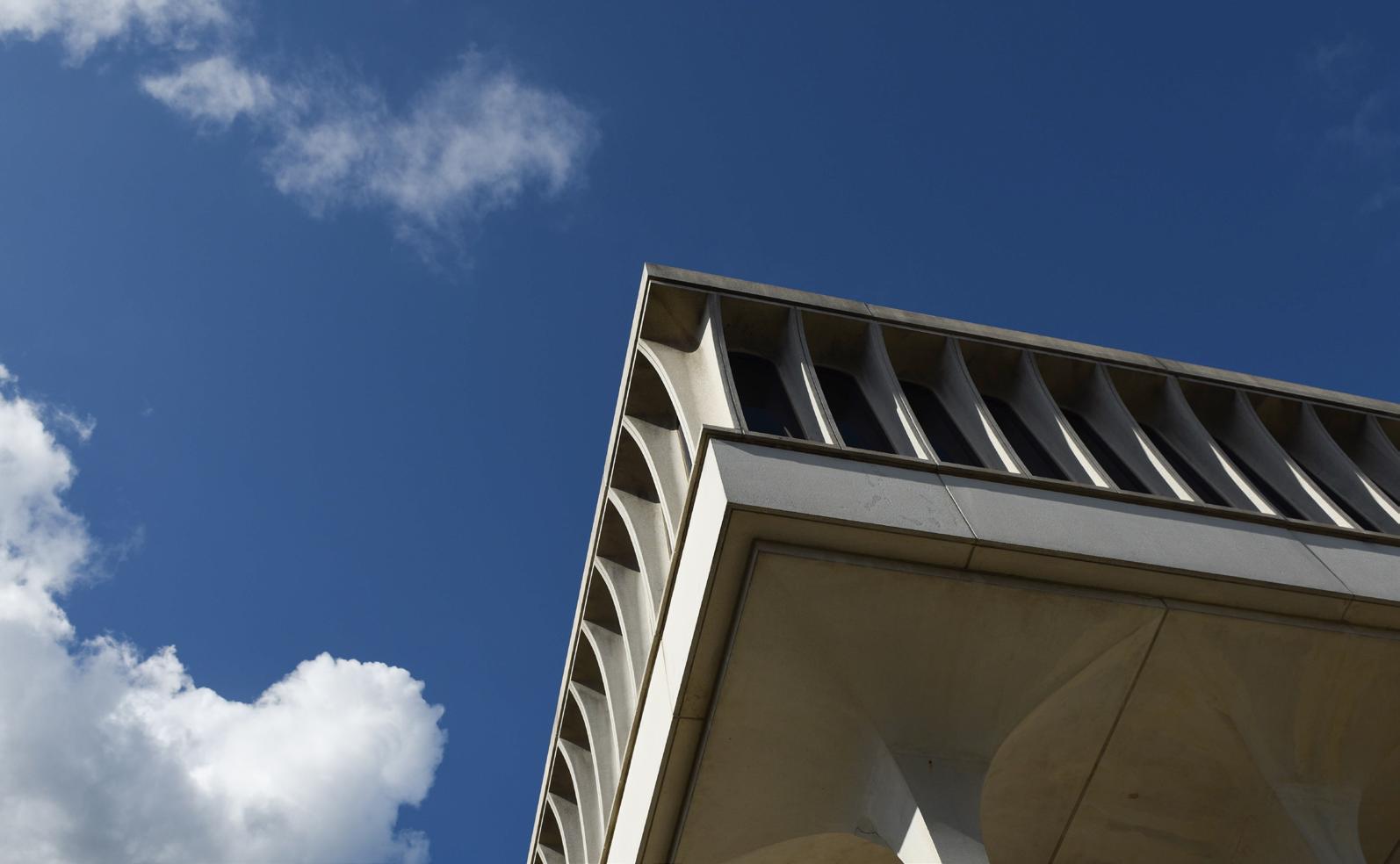
“I’ve had the privilege of working closely with many past and current graduate students on their ideas and feedback for reforming the School’s curriculum,” said Vice Dean Miguel A. Centeno, who also chairs the School’s Standing Committee on Diversity, Equity, and Inclusion. “I feel deep gratitude for their tireless advocacy efforts and passion. We’ll continue seeking input on how all aspects of our curriculum can be revised to reflect the School’s core values and scholarship from diverse voices.”
Both graduate and undergraduate students launched petitions this summer, calling on the School to address DEI more constructively in its curriculum and programming.
“I stand alongside our students in their desire to have a curriculum that comprehensively and honestly addresses our divided societies, systemic racism, and injustice in all forms,” said Mark W. Watson, acting dean from March 1 to July 31. “Our aim is to have students emerge from the School equipped with the tools required to create and implement policies that foster justice and well-being for all citizens.”
In addressing both the undergraduate and graduate core curricula, the School will engage faculty, administrators, students, and alumni. The efforts will be a part of Dean Rouse’s larger plan to meet President Eisgruber’s call to his cabinet to think creatively and broadly about how to address racism and injustice, both at Princeton and in the wider world.
As a result of a 2016 Princeton University Board of Trustees’ report, Princeton President Christopher L. Eisgruber called for the establishment of a Woodrow Wilson “marker” to convey the complexities of Woodrow Wilson’s legacy.
In fall 2019, the installation, “Double Sights,” was erected on Scudder Plaza beside Robertson Hall, home of the Princeton School of Public and International Affairs. Designed by acclaimed artist Walter Hood, the piece measures 39 feet in height with two vertical planes facing each other. One is a glass lenticular surface with images of some of Wilson’s contemporaries who were very critical of his views, particularly about race and gender. The opposite side, composed of stainless steel, contains quotes by these detractors regarding negative actions Wilson took. Direct quotes by Wilson are on the outer sides of the two planes.
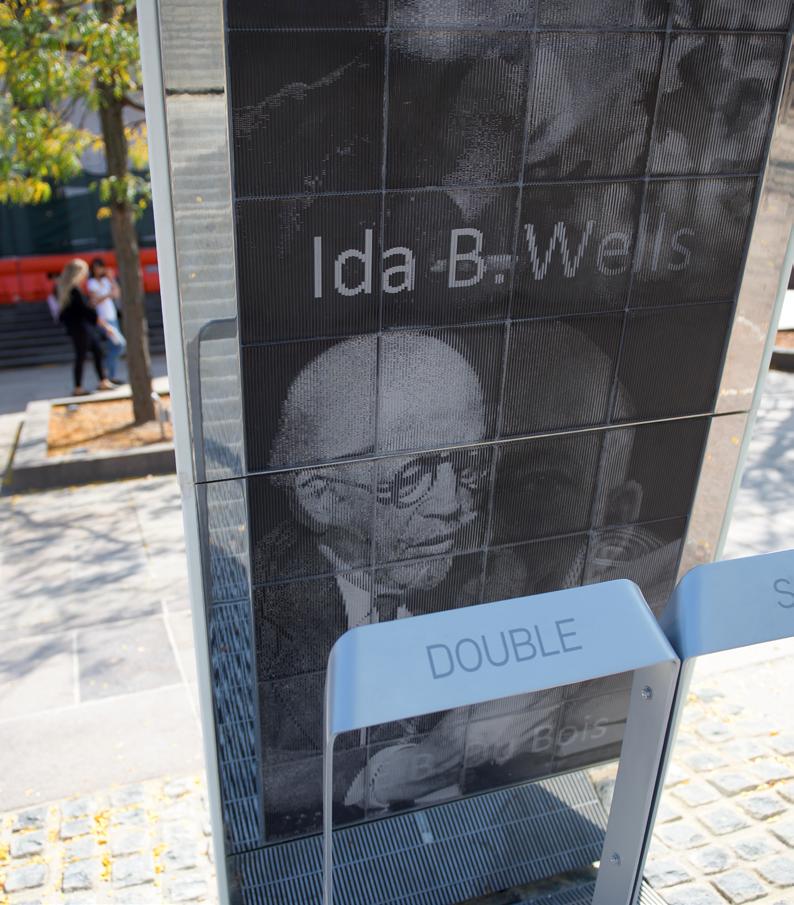

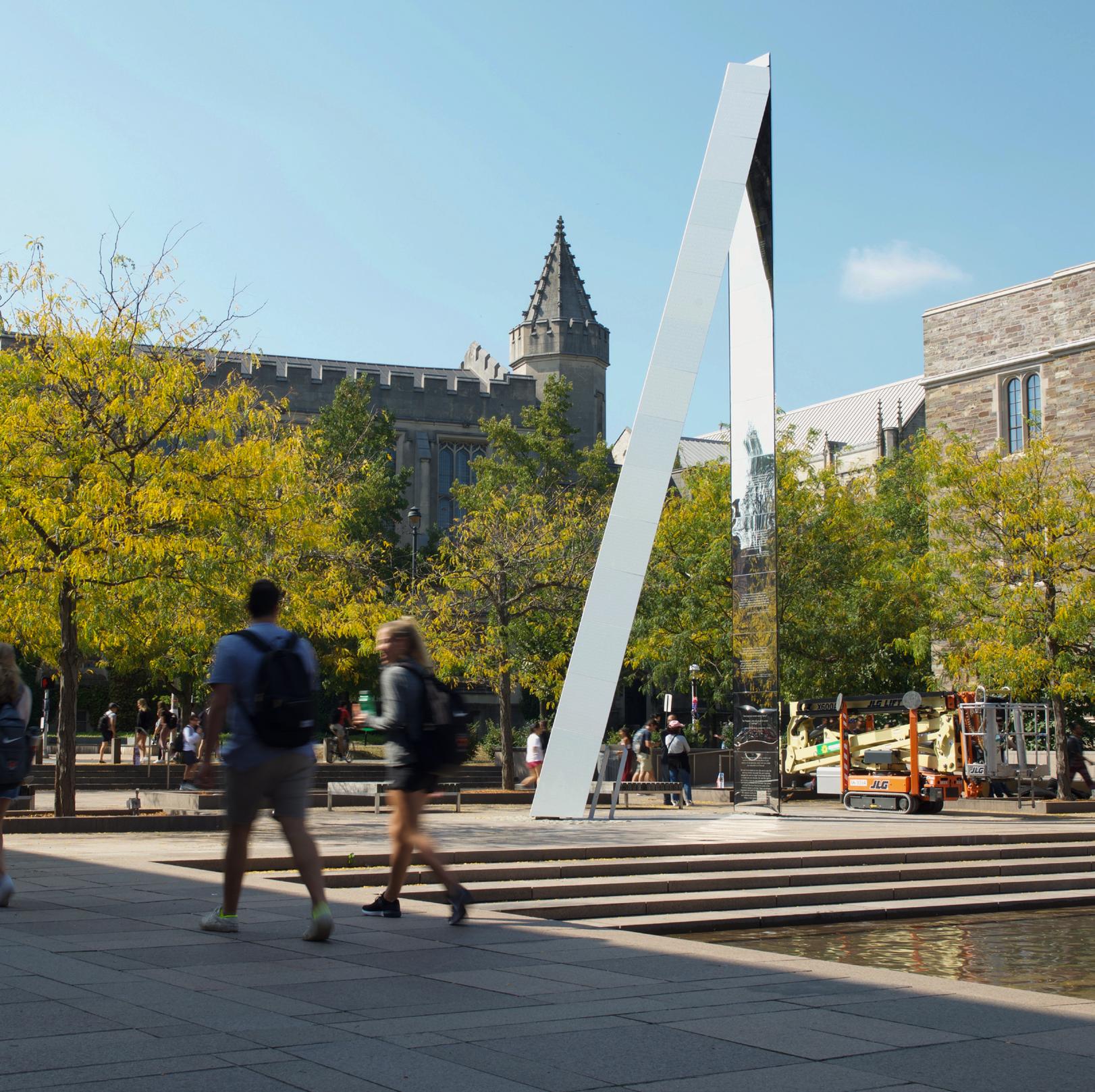
The installation was unveiled in fall 2019 during the “THRIVE: Celebrating Princeton’s Black Alumni” conference. A public event was held featuring Hood as well as Michele Minter, vice provost for institutional equity and diversity, and a reception followed in the Bernstein Gallery where the exhibit “In the Nation’s Service? Woodrow Wilson Revisited” was on display.
A website was created for this project, providing background and context for the piece.
The year 2020 will be remembered for the emergence of a pandemic affecting people in every corner of the globe. Princeton and the School were hardly immune.
In March 2020, almost all undergraduate students were ordered to leave Princeton’s campus, all teaching was converted to online instruction, and all nonessential employees were instructed to work from home. Graduate students were allowed to stay in University housing but prohibited from large gatherings and campus buildings. Faculty and staff with children faced the closure of child care and K-12 schools, while others welcomed home college-age and adult children as they set up home offices. Some had family suffer from the illness or did so themselves.
Those in charge of the undergraduate concentration reviewed and modified due dates, grading and thesis defense policy, calculation of student awards, and concentration requirements (such as field experience) that were hard to meet under Covid-19 conditions.
On the graduate level, the School converted in-person events to virtual discussions. This included the popular hosting weekend for newly admitted students, as well as events intended to recruit new students to the School. Deadlines were modified, grading and qualifying exam policies reviewed and changed, and graduate students in need were provided emergency funding for internet, technology, and connectivityrelated expenses.
With this as the backdrop, administrators and faculty at the School had to make a number of decisions to keep its community safe while also finishing the academic year. On the operations front, this included providing guidance for remote/flexible work arrangements, canceling outside visitors and speakers from traveling to campus, and rearranging computing services and mail delivery to ensure feasible work-at-home conditions. The annual Advisory Council meeting was held virtually via Zoom.
The School’s Junior Summer Institute program of rising seniors from universities across the U.S. was converted to an online program. Support was provided to faculty to set up and improve online instruction.
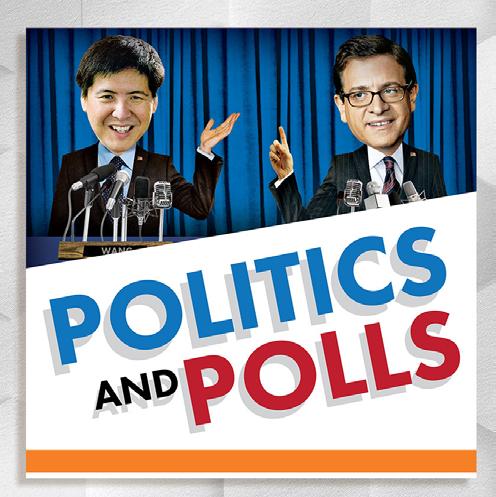
& Polls is a weekly series
by the School. Since
launch in 2016, the pair has recorded nearly 200 episodes featuring prominent guests from politics, academia, journalism, the entertainment industry, and more.


E. Zelizer, the Malcolm Stevenson Forbes, Class of 1941 Professor of History and Public Affairs
S. Wang, professor of molecular biology and the Princeton Neuroscience Institute
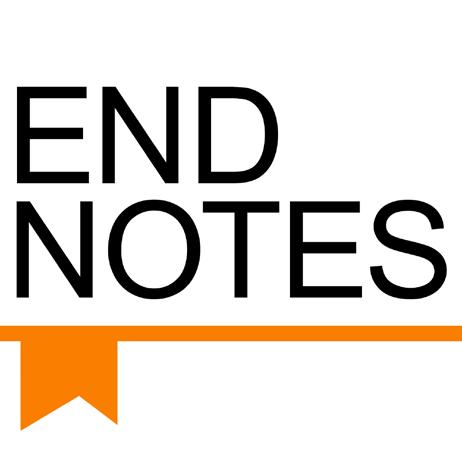
cover

books
takes listeners behind
the pages
on


policy, and more — all written by faculty at the School.
show is hosted by B. Rose Huber, communications manager
senior writer.






